08/05/2024 - From Victim to Advocate: Breaking the Cycle of FGM
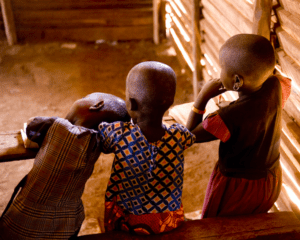
It’s early morning in the village where Batula and her parents live, and as is the norm, everyone is woken up by the call for prayer. As early as thirty minutes past seven, her grandmother shows up carrying concoctions and some herbs. Batula asks her grandmother what those things are used for: “This will help you heal faster after transforming you into a woman”. This is a seven-year-old girl who is supposed to be playing but something horrendous is about to happen to her.
For decades, thousands of women have perpetrated, perpetuated, and been punished by female genital mutilation. When Batula witnessed young females, between the ages of 7 and 15, bursting into their home with their parents, she became perplexed. All of these girls will be subjected to this gruesome activity. The fact that it happens to a child makes it one of the worst nightmares that any woman may experience.
Besides the horrendous pain that Batula will go through, her emotional and mental health will also be damaged. She could even develop mental health issues such as Body Dysmorphic Disorder, a condition many victims of FGM experience and which is characterized by a distressing obsession with flaws in one’s appearance, leading to excessive self-criticism and lack of self-esteem.
When the moment arrives the circumciser asks Batula “Open your legs young girl” Tears cascading her soft cheeks, not understanding what they are doing to her. She tries to escape but she is held by two ladies, her mother and her aunt. Each holding one of her feeble legs. Batula retaliates until they put a piece of cloth in her mouth to stop her from screaming. She faces the knife, and an important part of her body is now among the trash that the stray cats look out for. The same process is repeated for up to 10 young girls, some of them willing because of the lectures given by their older aunts and their mothers about the matter.
Mental health is one of the crucial topics of our generation and is, in fact, one area that should be given greater attention. Batula’s community does not recognize mental health at all. According to them, depression does not exist. One can literally be at their lowest, and one of their own family members would comfortably say “She has demons”. “She is possessed”. This is one of the things FGM does to a young girl. It destroys her mental health as well, and it kills her will to exist on this earth. At her age, Batula is supposed to be enjoying her childhood just as normal children in the world do, but sadly, that is not the case for many young girls like her, who are forced to “act like women” at that age. “Sit upright, aren’t you a girl?” is one of the constant phrases you are likely to hear in such a household.
A few years later another ordeal befalls Batula, she is defiled by her uncle at the age of 10 in their own home and the issue is solved by a group of elderly men. This is known as “maslaha” and is the main perpetrator of the crimes committed against girls in Batula’s community. In her community crimes such as defilement and rape are not taken to court because they believe that such issues will bring shame to the community, they, therefore, invite the elders of the community, and money is paid by the perpetrator of the crime or they marry off the victim to the perpetrator and in Batula’s case the council of elders decided to marry her off to the perpetrator of the crime when she becomes older.
With this kind of unstable mind, Batula will turn 15, and she will be “ready” to get married off to one of the uncles who defiled her at the age of 10. At the age of 15, she is forced into marriage, and worse, she is married to someone who committed a crime against her. She is now forced to coexist with someone who wronged her, and society makes this feel right. Batula’s childhood has been snatched from her, and as if that was not enough, she will now spend her teenage years as a wife to a man three times her age. At that tender age, she is obligated to act as a wife and to cater to ‘wifely duties’. At the age of 17, Batula most probably will become a mother; she is supposed to take care of children, and because Batula is not aware of the crimes committed against her due to a lack of education, her children would go through the same path of life.
Education is the solution. It is the only tool that can demystify such destructive cultural habits. Education that will prioritize the younger generation, particularly young girls like Batula. With education, Batula would be able to understand the distinction between religion and culture, she would be aware of her rights as a girl, and contribute to change by promoting education in the children she raises.
I am a survivor of Female Genital Mutilation and I believe if my parents went to school and were educated this could have been prevented. I had the opportunity to go to school and learn a lot and with that, I am not taking this gruesome activity to my generation. As a young girl who grew up in a marginalized community education has changed how I see things and would advocate for education for young girls like Batula. Educating young girls like Batula could save a whole generation from the FGM pandemic.
By: Ikran (Young Kenyan Advocate for Child Rights)
The post From Victim to Advocate: Breaking the Cycle of FGM appeared first on Arigatou International.
28/07/2023 - Planting Seeds of Peace in Children
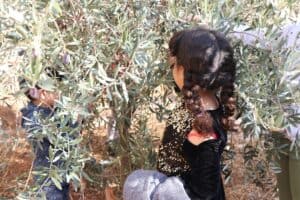

Palestine, a country on the eastern coast of the Mediterranean Sea, to the south of Lebanon, and to the west of Jordan is uniquely a holy land in three of the world’s major religions–Islam, Christianity, and Judaism. One of the basic components and values that Palestine lacks and aspires to achieve is peace since it is a country under occupation. Various Palestinian institutions seek to reach both inner community peace and external peace. They do so by spreading awareness and applying practices and procedures needed to deepen the values of peace among different groups.
Children are one of the main actors we should work with. They are the leaders of tomorrow and the builders of the future who will form the basic layer for building a peaceful society in Palestine. To do so requires more focus and care teaching children and training them to apply this concept of peace in practical and amicable ways through campaigns and initiatives asking for rights and seeking change.
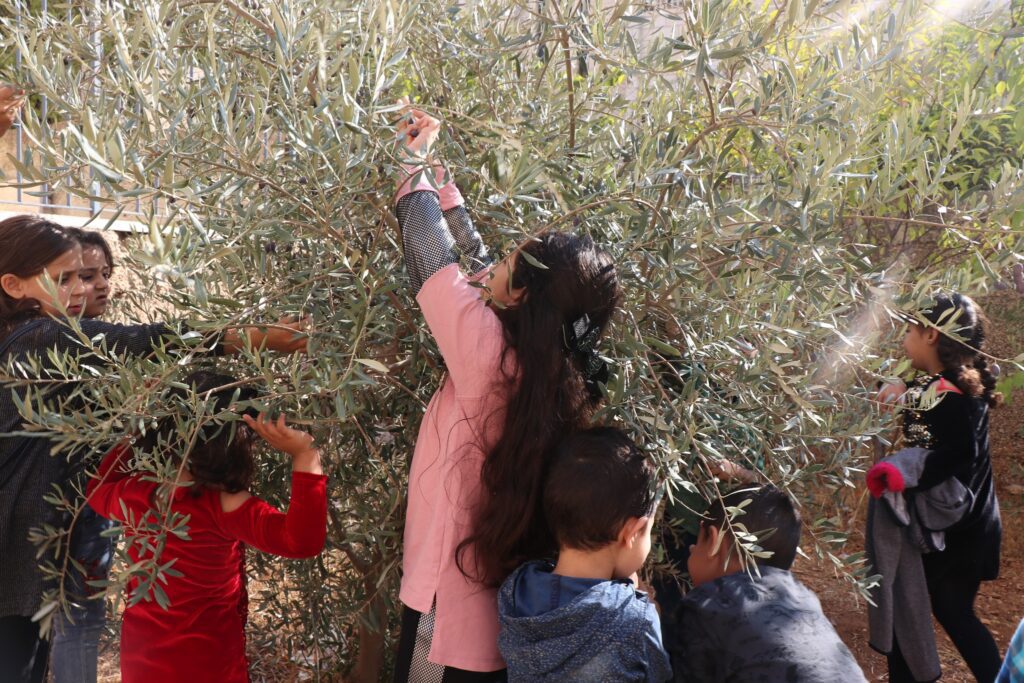
In many countries the olive tree symbolizes peace, and certainly so in Palestine. Palestine is famous for its olive trees which are hundreds of years old and whose olives are delicious. The olive tree is also a symbol of the Palestinian people’s connection to the land and the solidity of its roots.
Community Harmony and Living Together
The Arab Educational Institute (AEI) – a member organization of Pax Christi International, located in Bethlehem – is a Palestinian non-profit organization working in the field of community education and awareness through educational projects and programs. AEI targets various segments of Palestinian society, including youth, women, and children. Peace is one of the main concepts of AEI’s mission. It teaches this concept in two dimensions: inner peace with oneself and external peace with the environment, society, and the world.
Children are the main target group of the AEI within its children’s group and among students of the schools’ network in Bethlehem, Ramallah and Hebron cities. Teaching and training on peace are carried out through awareness-raising, educational lectures, training workshops, and non-violent activities such as advocacy campaigns, education through art, music, drama, and writing stories. The AEI focuses in its work with children and school students on the concepts and values of citizenship, civil peace and living together through its longstanding program ‘Citizenship and Diversity: Christian/Muslim Living Together in Palestine’.
“Peace is a word with a beautiful and good meaning. It gives us calm and serenity. It is the presence of harmony and love between people and it means staying away from wars and conflicts.” – Child, AEI
Peace is one of the basic concepts and values that must be learned and practiced in life because the lack thereof results in conflicts. To achieve peace, its seeds should be planted from a young age in children so that the fruits can be reaped when they grow.
Claudette S. Mubarak, GNRC Country Communications Associate, Pakistan
Bethlehem
18.10.2022
The post Planting Seeds of Peace in Children appeared first on Global Network of Religions for Children.
The post Planting Seeds of Peace in Children appeared first on Arigatou International.
25/07/2023 - World Forum on Human Rights
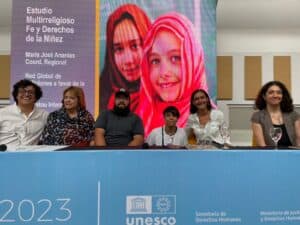
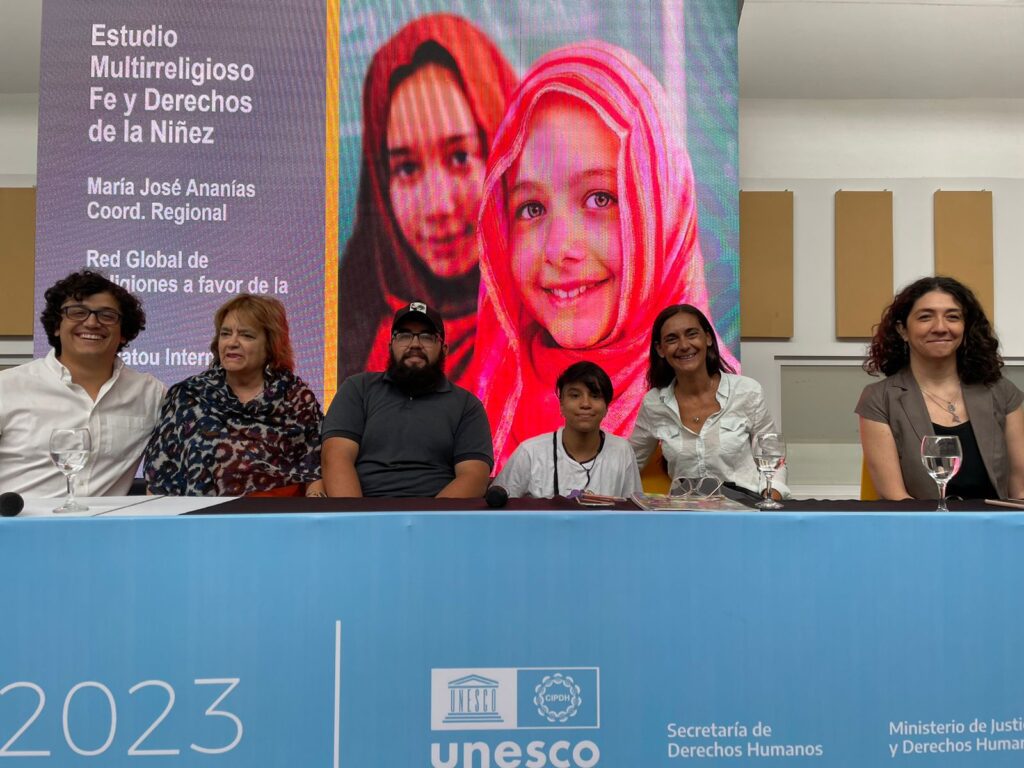
GNRC Argentina participated in the third World Forum on Human Rights held in Buenos Aires from 20th to 24th March 2023. They made a presentation led by their Coordinator, Ms. Ana Maria Verilla, Claudio Fuentes, a GNRC member, and Mr. Joni, GNRC member, on activities by GNRC Argentina.
Ms. María José Ananias, Coordinator, GNRC Latin America and the Caribbean (LAC), also participated in the meeting. She presented on the Study of Faith and Children’s Rights: Multireligious Study of the Convention on the Rights of the Child, benefitting eighteen individuals.
The post World Forum on Human Rights appeared first on Global Network of Religions for Children.
The post World Forum on Human Rights appeared first on Arigatou International.
21/07/2023 - Changing Patterns of Adultcentrisim
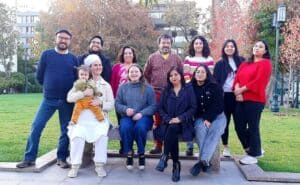
Engaging Children in Decision Making
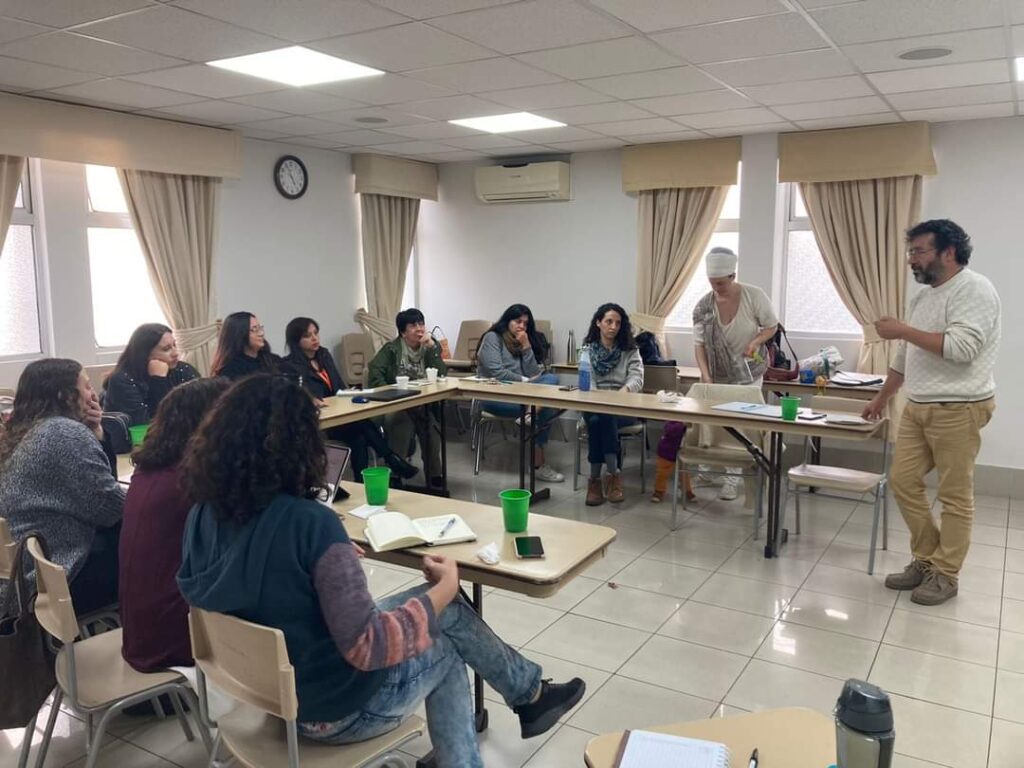
Adultcentrism is the tendency of adults to view children and their problems from a biased, adult perspective, thus creating barriers to effective practice with children.
How do we change structural patterns of adultcentrism in our work with children and adolescents?
To answer this question, and develop an interreligious, intercultural, and intergenerational project, GNRC Chile sought consultancy with sociologist and professor from the University of Chile, Claudio Duarte. In a two-day workshop, they reflected through a participatory process on how behavior built on structures of unconscious repetition can be overcome, and how age should not be viewed as a factor of power, but rather an element of participation. They concluded that diversity in age allows for meaningful participation where everyone contributes from their experience, interest, and point of view. Meaningful participation of children in activities and processes allows them to feel heard and know that their opinions matter.
Article 12 of the Convention of the Rights of the Child recognizes that children have the right to participate in decision-making on matters that concern and affect them, whether individually or collectively. It allows them to express their opinions and have them considered. Adults are expected to facilitate safe spaces for children for them to grow, create, and implement their interests and needs.
The post Changing Patterns of Adultcentrisim appeared first on Global Network of Religions for Children.
The post Changing Patterns of Adultcentrisim appeared first on Arigatou International.
21/07/2023 - GNRC Pakistan Marks World Day Against Child Labour
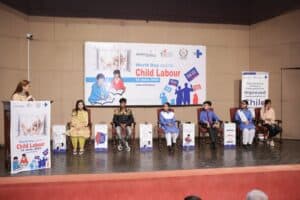
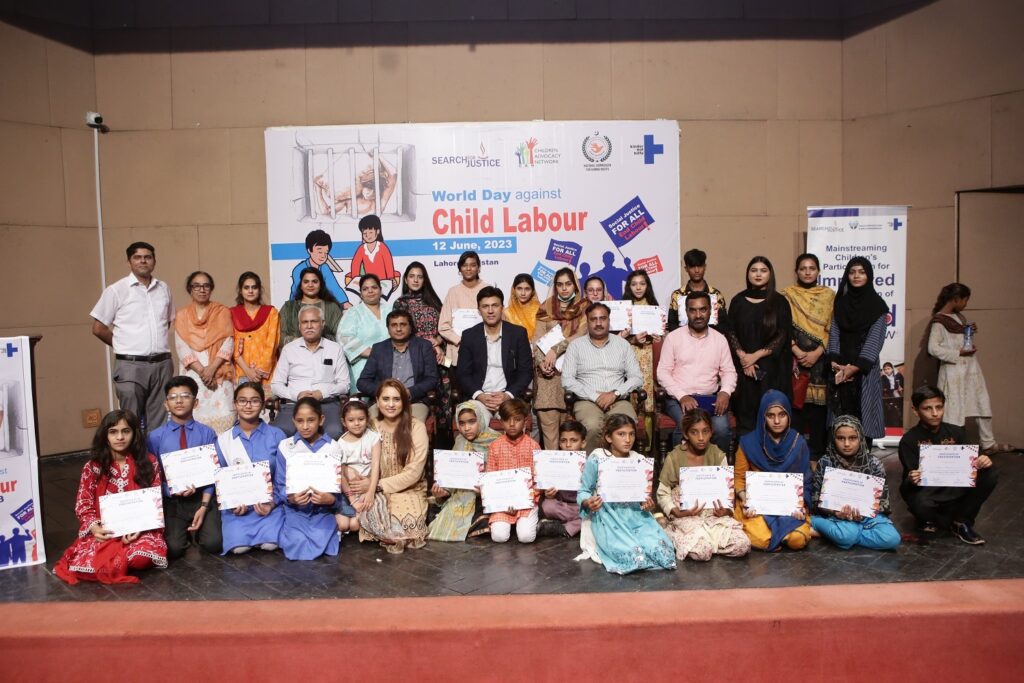
Child labor is a violation of human rights and a barrier to social and economic development. Governments, employers, workers, and civil societies should join forces and take concrete actions to eliminate child labor in all its forms.
Guided by this year’s theme of the World Day Against Child Labor, ‘Social Justice for All. End Child Labour!’, hundreds of people gathered in Lahore on 12th June 2023 to commemorate the day. Led by Children Advocacy Network-Pakistan (CAN-Pakistan) and its partners, they demanded social justice for all children.
Despite the adoption of a National Policy on Child Labor in 2000 and a National Action Plan on Child Labour in 2016, Pakistan continues to be among countries with the highest prevalence of child labor in South Asia. The COVID-19 pandemic worsened the situation, as many families lost their livelihoods and pushed more children into child labor.
Mr. Raja Basharat, the Minister for Law and Parliamentary Affairs of Punjab, reaffirmed the government’s commitment to end child labor and ensure social justice for all children. Ms. Hina Mansab Khan, President,Women Chamber of Commerce, and Industry (WCCI), emphasized the need to provide social protection to vulnerable groups, especially women and children, who are often exploited and abused. She added that social protection could help reduce poverty, inequality and vulnerability and create an enabling environment for decent work and sustainable development.
The role of social dialogue and social protection in preventing and combating child labour, backed up with testimonies from former child laborers were highlighted.
The event concluded with a pledge by all participants to join hands and work together to end child labour by 2025, as part of the Centenary Declaration for the Future of Work.
“Involving workers’ organizations in the design and implementation of policies and programmes on child labour is a necessity as they could play a key role in raising awareness, mobilizing resources, providing services and advocating for the rights and interests of workers and their families.” – Mr. Zahoor Awan, General Secretary, Pakistan Workers’ Federation (PWF)
The post GNRC Pakistan Marks World Day Against Child Labour appeared first on Global Network of Religions for Children.
The post GNRC Pakistan Marks World Day Against Child Labour appeared first on Arigatou International.
12/07/2023 - United by Humanity in Diversity
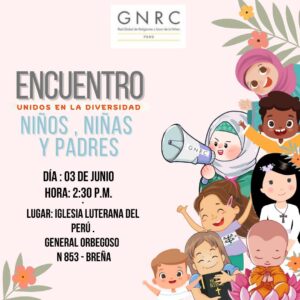
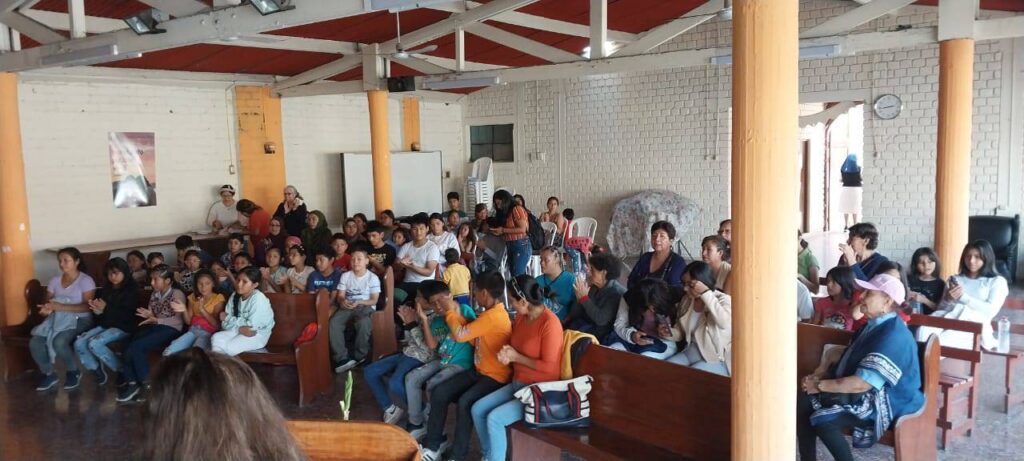
‘Imagine a world where people live in harmony, appreciating and respecting their diversity.’
With this, and committed to shared values, common humanity, and the infinite value of human life, GNRC Peru convened a parents-children meeting on 3rd June 2023. The meeting brought together people from the Bahai, Catholic, Methodist, Lutheran Church of Peru, and Muslim Communities to reflect on the topic ‘United in Diversity’.
Children and parents engaged in constructive discussions where the wisdom of children was evident via interactions. They reflected on the uniting factor of all humans despite diversity that is, their humanity.
The meeting ended with both parties agreeing that all humans are equal with similar fundamental needs and their diversity allows them to cater for them in their own unique way(s).
“We are all different, which is great because we are all unique. Without diversity, life would be very boring.” ~ Catherine Pulsifer
The post United by Humanity in Diversity appeared first on Global Network of Religions for Children.
The post United by Humanity in Diversity appeared first on Arigatou International.
10/07/2023 - Meet the Contact Person, GNRC Syria
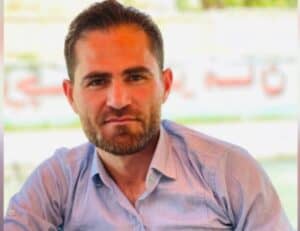
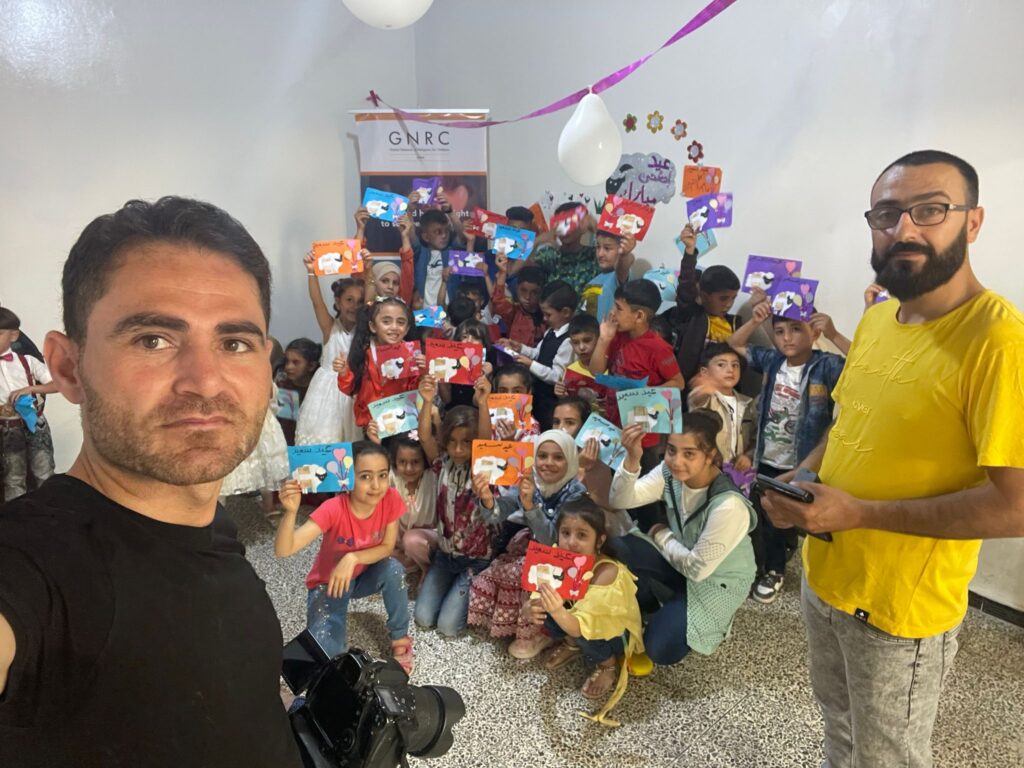
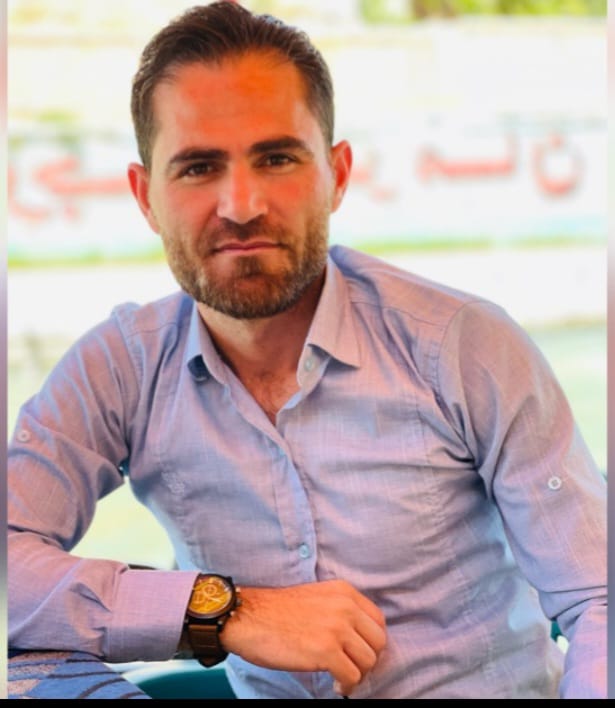
Mr. Hafez Taraman
Media Personality and Humanitarian Activist from Syria
Mr. Hafez has been active in media work since 2012 and worked with several local and foreign channels until 2017. He set foot in humanitarian work with several local Syrian organizations. In 2018, he launched initiatives— including Kids Future for children in the city of Maarat al-Numan. The initiative established a cultural library project for reading on children who suffer from psychological conditions due to air strikes and other crises.
Mr. Hafez is inspired by children as they are the ‘weakest’ link in his society. They do not have a safe space to express what they need, nor access to education due to displacement and destruction of schools. This prompted him to respond to the needs of children, highlighting their suffering through the media, and helping them secure their needs by communicating with supporting agencies.
‘Witnessing injured children screaming while warplanes bombed their homes, accelerated his urge to work with children.’
Mr. Hafez joined the Global Network of Religions for Children (GNRC) in response to his passion and calling to serve children. The GNRC being a network dedicated to building a better world for children captivated him.
“I am very happy to work with the Network and I cherish it. “Mr. Hafez Taraman, Contact Person, GNRC Syria.
The support from the Network encourages him to continue providing support to children in Syria. It has helped develop work to promote education and provide psychological support for children, especially in camps. It has also provided suggestions and advice on how to enhance transparency and effective communication between civil society organizations and other volunteer teams. His mission, therefore, is to create a better community for children. He is proud of his successes and achievements in this field.
The Earthquake in Syria 2023.
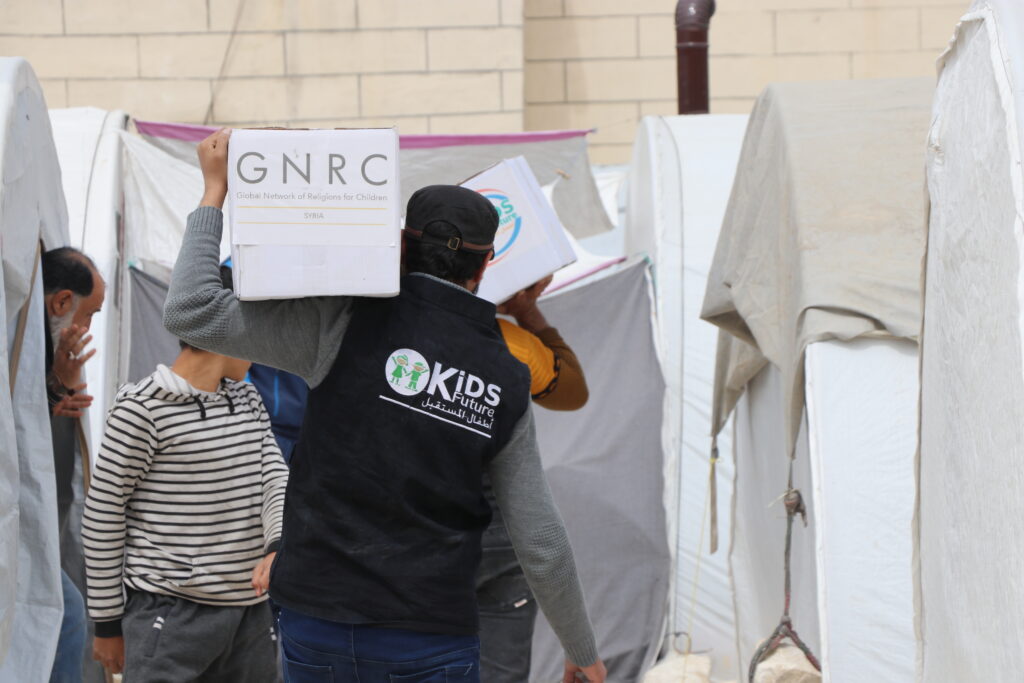
Through the GNRC, Mr. Hafez supported those affected by the earthquake. Together with other GNRC members, they provided food baskets to families affected.
The earthquake had psychological and behavioral effects on children especially those who lost their families and those who survived from under the rubbles. They developed problems such as involuntary urination, fear and hesitation, attachment to parents and aggression. Due to lack of awareness, lack of projects targeting children and parents not knowing how to deal with such changes, the importance of the idea to work with children came in.
His hope is that children in Syria live in a more peaceful and stable country, where their basic rights such as education, health and decent life are respected. He also hopes that children will be provided with safety and protection from violence, exploitation and harassment, and that they will have the opportunity to enjoy their childhood without fear.
“The best world for children in Syria is one that protects and encourages them to achieve their dreams, and in which they can grow and develop in safety and have confidence in themselves.” Mr. Hafez Taraman, Contact Person, GNRC Syria.
The post Meet the Contact Person, GNRC Syria appeared first on Global Network of Religions for Children.
The post Meet the Contact Person, GNRC Syria appeared first on Arigatou International.
10/07/2023 - Meet the GNRC Syria Contact Person



Mr. Hafez Taraman
Media Personality and Humanitarian Activist from Syria
Mr. Hafez has been active in media work since 2012 and worked with several local and foreign channels until 2017. He set foot in humanitarian work with several local Syrian organizations. In 2018, he launched initiatives— including Kids Future for children in the city of Maarat al-Numan. The initiative established a cultural library project for reading on children who suffer from psychological conditions due to air strikes and other crises.
Mr. Hafez is inspired by children as they are the ‘weakest’ link in his society. They do not have a safe space to express what they need, nor access to education due to displacement and destruction of schools. This prompted him to respond to the needs of children, highlighting their suffering through the media, and helping them secure their needs by communicating with supporting agencies.
‘Witnessing injured children screaming while warplanes bombed their homes, accelerated his urge to work with children.’
Mr. Hafez joined the Global Network of Religions for Children (GNRC) in response to his passion and calling to serve children. The GNRC being a network dedicated to building a better world for children captivated him.
“I am very happy to work with the Network and I cherish it. “Mr. Hafez Taraman, Contact Person, GNRC Syria.
The support from the Network encourages him to continue providing support to children in Syria. It has helped develop work to promote education and provide psychological support for children, especially in camps. It has also provided suggestions and advice on how to enhance transparency and effective communication between civil society organizations and other volunteer teams. His mission, therefore, is to create a better community for children. He is proud of his successes and achievements in this field.
The Earthquake in Syria 2023.

Through the GNRC, Mr. Hafez supported those affected by the earthquake. Together with other GNRC members, they provided food baskets to families affected.
The earthquake had psychological and behavioral effects on children especially those who lost their families and those who survived from under the rubbles. They developed problems such as involuntary urination, fear and hesitation, attachment to parents and aggression. Due to lack of awareness, lack of projects targeting children and parents not knowing how to deal with such changes, the importance of the idea to work with children came in.
His hope is that children in Syria live in a more peaceful and stable country, where their basic rights such as education, health and decent life are respected. He also hopes that children will be provided with safety and protection from violence, exploitation and harassment, and that they will have the opportunity to enjoy their childhood without fear.
“The best world for children in Syria is one that protects and encourages them to achieve their dreams, and in which they can grow and develop in safety and have confidence in themselves.” Mr. Hafez Taraman, Contact Person, GNRC Syria.
The post Meet the GNRC Syria Contact Person appeared first on Global Network of Religions for Children.
The post Meet the GNRC Syria Contact Person appeared first on Arigatou International.
05/07/2023 - Changing Communities and Impacting Lives
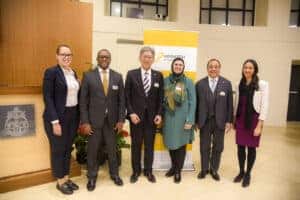
GNRC Bosnia and Herzegovina
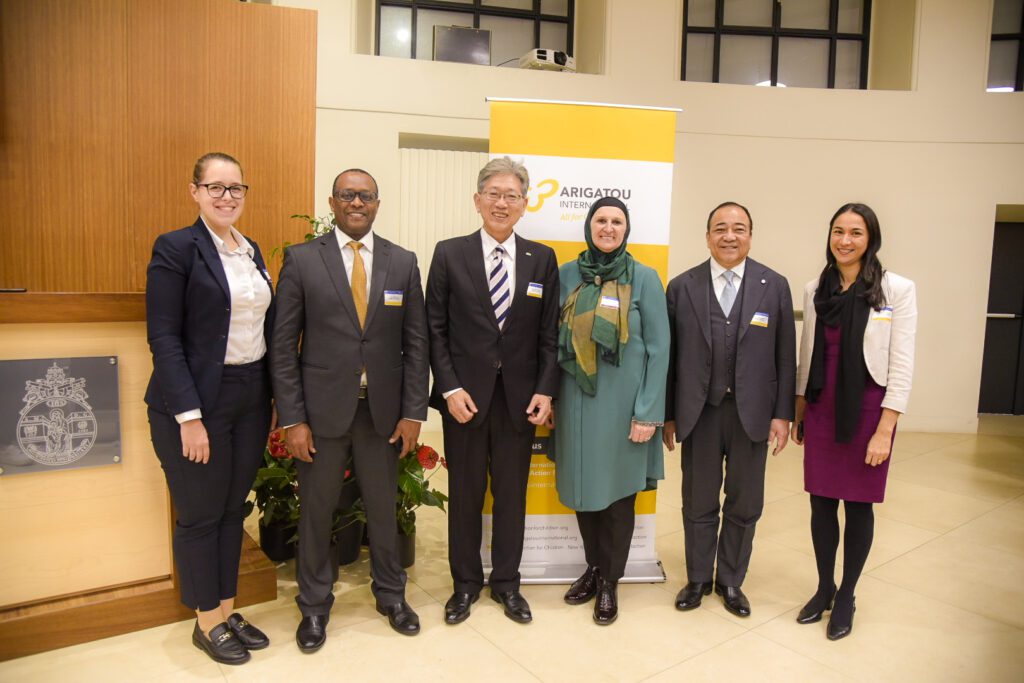
“Our motivation to work with children on the move is founded in the essence of interreligious dialogue, peace, love, togetherness and the empathy we have for them. We desire to create a safe space, respecting all differences, attitudes and opinions.”
~ Ms. Ismeta Salihspahic
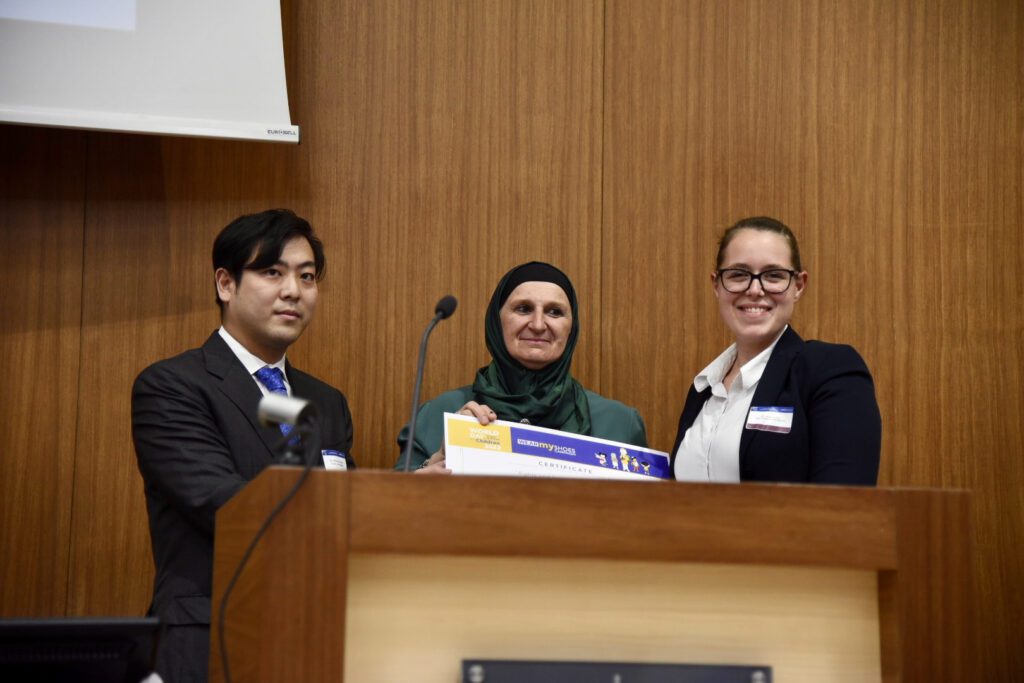
On the World Day of Prayer and Action for Children, 2023, held in Rome by Arigatou International’s Prayer and Action initiative, GNRC Bosnia and Herzegovina (BiH), won the award for the Wear My Shoes Campaign. The award is a recognition of the work by GNRC BiH to create a safe space for children on the move (refugees) within the borders of Bosnia and Herzegovina.
Guided by their work to promote unity and interreligious dialogue among children and youth, GNRC BiH was inspired to help children on the move. They carried out interreligious dialogues that saw religious leaders and community members come together to raise awareness of the problems faced by refugees. They also carried out workshops with children from different local communities and provided food and hygiene items to the children on the move, to promote inclusion.
“We want to create a safe space for children on the move from Syria, Afghanistan, and Ukraine, due to the discrimination they are facing from the local communities.“ – Ms. Ismeta Salihspahic, Coordinator, GNRC BiH.
Winning the award set GNRC BiH apart in the local community as a promoter of working with children as well as helped them receive donations to facilitate their work from the City of Visoko. People in their community gave personal donations, volunteered, and sent their children to take part in their workshops. Winning the campaign opened up opportunities for GNRC BiH to partner with major organizations to support children and youths.
Ms. Ismeta and Ms. Zvonimira Jakic, Youth Coordinator, GNRC BiH, established a committee of experts to continue implementing activities in accordance with their set goals. This is to sustain the progress of their work in creating safe spaces for children on the move.
The post Changing Communities and Impacting Lives appeared first on Global Network of Religions for Children.
The post Changing Communities and Impacting Lives appeared first on Arigatou International.
30/06/2023 - GNRC Comoros Celebrates the Day of the African Child

Fostering a Culture of Peace

The Day of the African Child observed annually on June 16th, commemorates a significant event in South African history that led to the loss of innocent lives but ultimately served as a catalyst for change. In 1971, over 20,000 studentsin Soweto protested against the oppressive apartheid regime’s education policies, specifically demanding to be taught in their own language. Sadly, their peaceful demonstration was met with brutal force as armed police officers responded by indiscriminately killing hundreds of protesters. This tragic incident became a turning point in the struggle for equal rights and justice in South Africa.
Today, the Day of the African Child is celebrated not only in South Africa as a Youth Day but also recognized globally as the International Day of the African Child. The occasion serves as an opportunity to celebrate the progress made in realizing the rights of African children, in accordance with the African Charter on the Rights and Welfare of the Child. These rights encompass protection from all forms of violence, as well as the right to participation and freedom of expression.
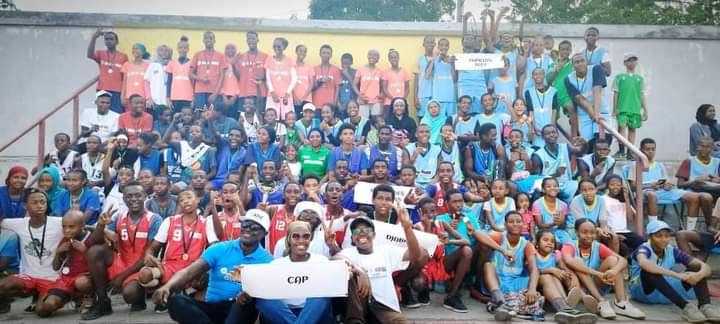
Across the world, GNRC members commemorated this day in different ways. GNRC Comoros organized a sports day on June 18th, led by their coordinator Mr. Akim Said M’Changama. The event aimed to raise awareness among youth about the importance of peaceful coexistence, tolerance, the prevention of violence against children, gender-based violence (GBV), and fostering a culture of peace. Over 200 children actively participated in the basketball activity, engaging both their minds and bodies while absorbing the core values of respect, harmony, and non-violence.
The Day of the African Child stands as a symbol of resilience, perseverance, and hope. It reminds us of the sacrifices made by generations before us to ensure that every African child receives quality education, protection from violence, and a platform to voice their opinions. While progress has been made, the day also serves as a reminder of the challenges that children continue to face around the world. It calls for collective action, advocacy, and continued efforts to create a society where every African child can thrive, free from violence and discrimination, with their rights respected and their dreams nurtured.
The post GNRC Comoros Celebrates the Day of the African Child appeared first on Global Network of Religions for Children.
The post GNRC Comoros Celebrates the Day of the African Child appeared first on Arigatou International.
23/06/2023 - Youth in Action – 2023

Youth Peacebuilding and Economic Empowerment
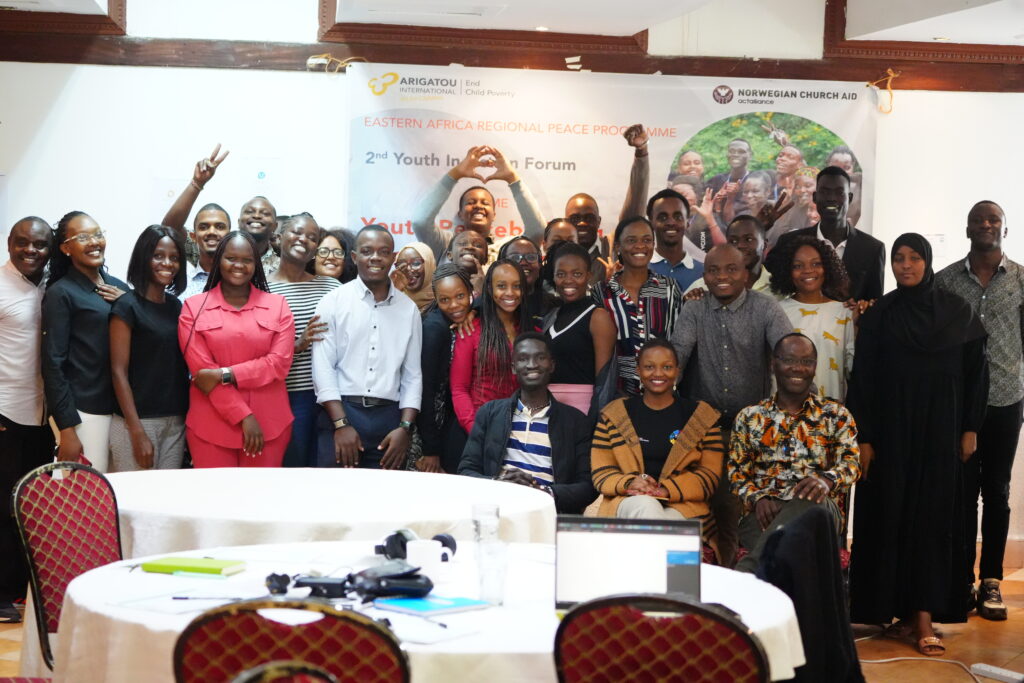
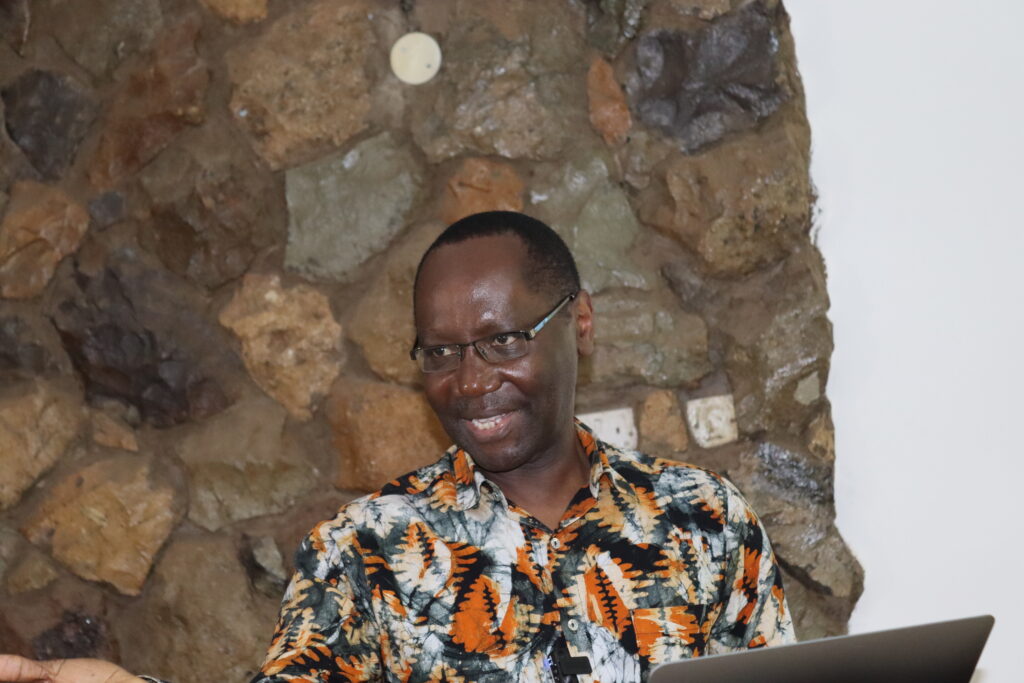
“Empowering young minds through entrepreneurship, interfaith dialogue, and inclusive policies fosters sustainable peace and prosperity. Together let’s bridge gaps and build a harmonious future.”
Rev. Fred Nyabera
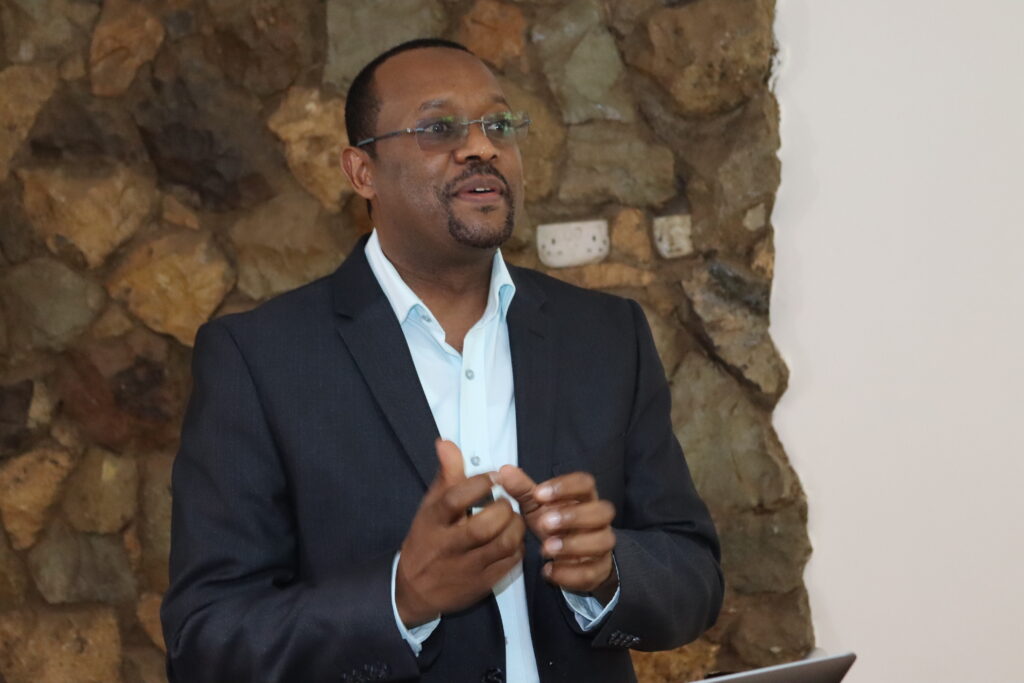
“We were created into diverse nations so that we can get to know and work together. We, therefore, need to embrace each other and our diversity without religious prejudice.” – Dr. Mustafa Y. Ali, Secretary General, GNRC
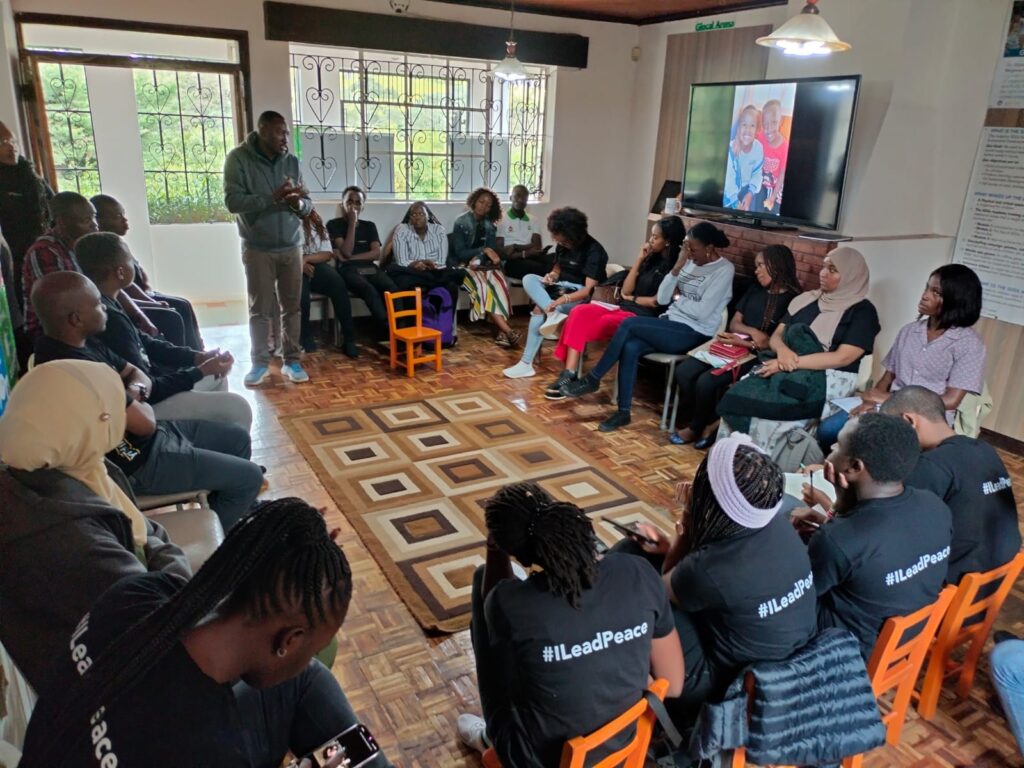
“In entrepreneurship, motivation support ideas and ideas are not ideas if not acted upon. One needs to start and learn as they progress.” – Mr. Adikwu
Oftentimes, people tend to separate peacebuilding and economic development. This however should not be so. In peacebuilding, it is important to bring in the aspect of economic empowerment as the two complement each other. The attainment of one could accelerate the attainment of the other. To connect the two, Arigatou International’s Interfaith Initiative to End Child Poverty (End Child Poverty), in partnership with the Norwegian Church Aid organized the 6th Youth In Action Forum (the second for the new cohorts). Twenty-five youths from five East African countries (Ethiopia, South Sudan, Uganda, Kenya, and Tanzania) were present at the forum. They participated in the four-day event, from 20th to 23rd May, under the theme Youth Peacebuilding and Economic Empowerment.
Rev. Fred Nyabera, Director, End Child Poverty, took the youths through the topic on Freedom of Religion or Belief (FoRB). He lauded the youths for their knowledge on the topic, and their active participation in online discussions on the matter. Through interactive sessions and games, the participants connected the importance of FoRB in peacebuilding and its correlation with economic development.
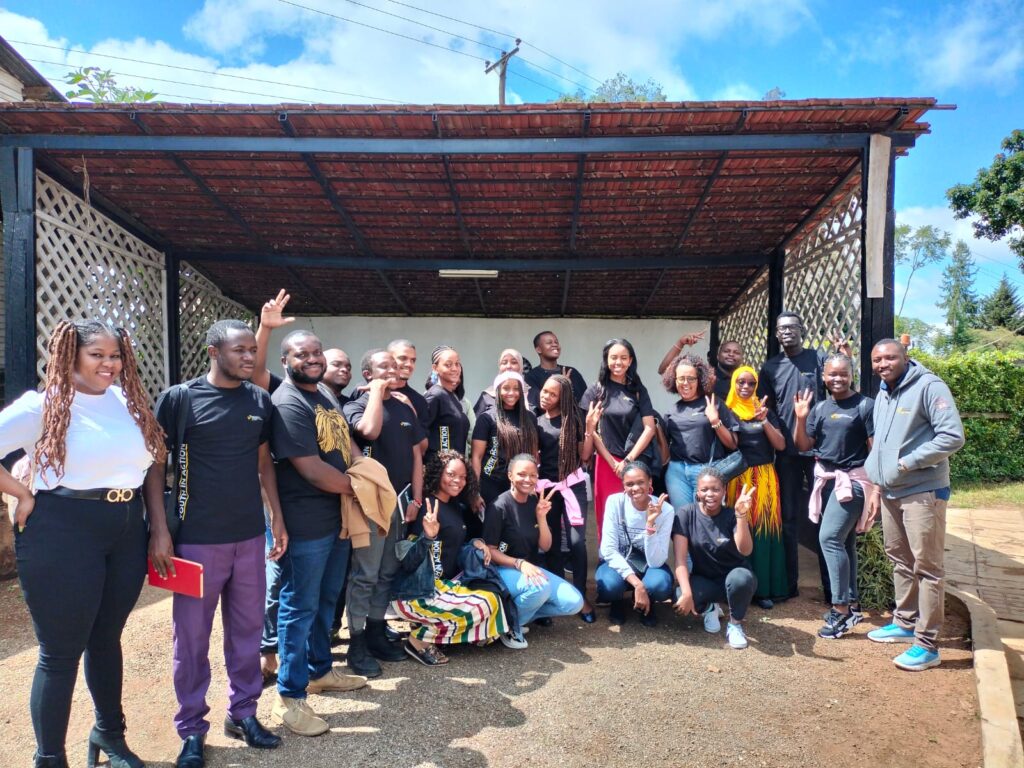
The participants visited the SDGs Academy for Children, in Limuru, Kenya, hosted by Mr. Michael Adikwu, the Sustainable Development Programme Lead at End Child Poverty. While there, they toured Tetu Farm (a farm owned by a youth couple). They were an inspiration to the youths as farming in Kenya, is an activity stereotyped for older retired generations.
The youths interacted with a team from EcoBana whose CEO, Mr. Lennox Omondi, was among the youths participating in the forum. He told the youths of the journey that saw the launch of EcoBana, a social enterprise that manufactures and distributes environmentally friendly sanitary towels made from banana fibers. “You do not always have to come up with new solutions to problems but work to improve on existing solutions” – Mr. Omondi.
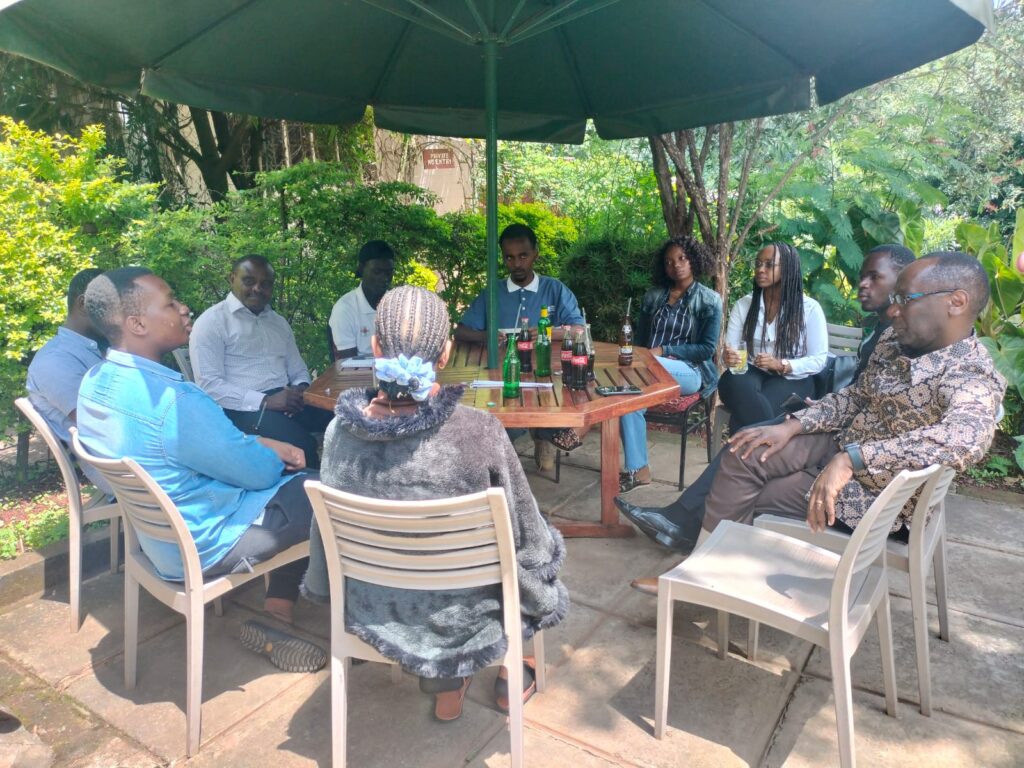
The youths shared their excitement about having participated in the Forum, and looked forward to the implementation of advocacy activities on FoRB, relevant to their country’s context.
The post Youth in Action – 2023 appeared first on Global Network of Religions for Children.
The post Youth in Action – 2023 appeared first on Arigatou International.
22/06/2023 - GNRC Bosnia and Herzegovina Celebrates the Day of the African Child
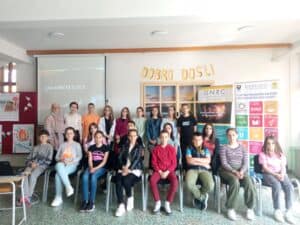
Educational and Living Conditions of Children in Africa
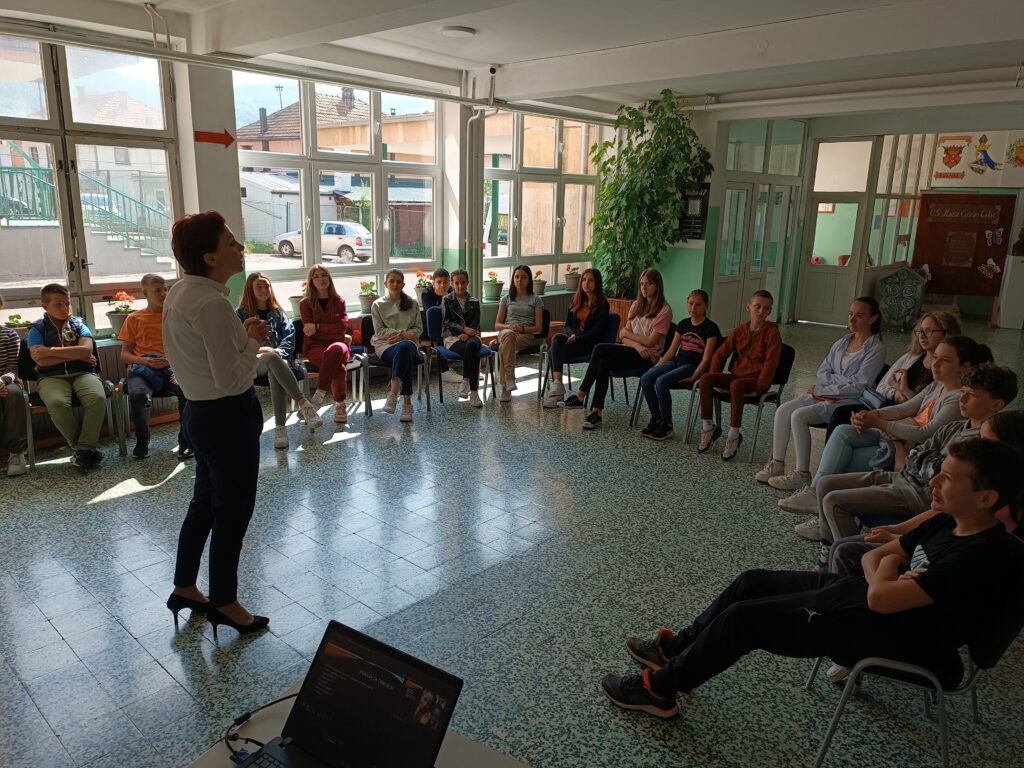
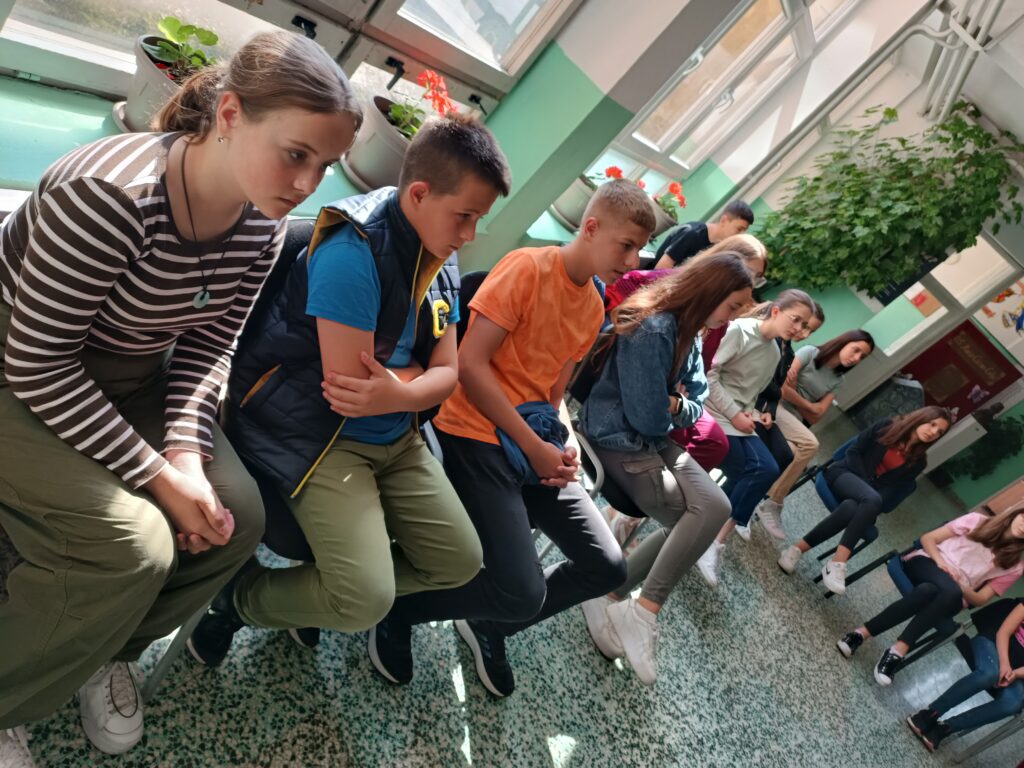
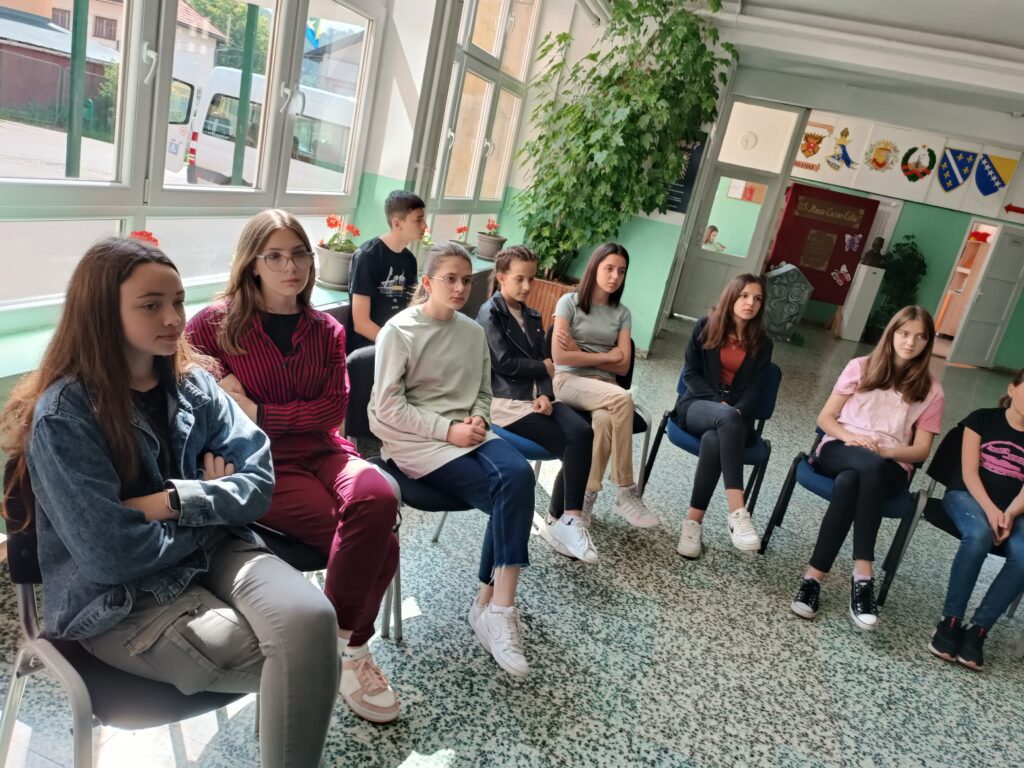
In the spirit of collaboration and strengthening the Network, and as a member of the Arigatou International family, GNRC Bosnia and Herzegovina (GNRC BiH) joined the rest of the GNRC members and the world in commemorating the Day of the African Child on 16th June 2023. To mark this auspicious day, a workshop titled ‘Children of Africa’ was held.
GNRC BiH took the participants through a presentation of the life of children from Africa, with a focus on Madagascar. The aim was to draw comparisons and bring attention to the conditions of upbringing and education of the African Child and the participants themselves.
After the presentation and discussion, it was evident that there was a change in awareness.
GNRC BiH wanted to encourage thinking about desires and ambitions in education, and through the prism of religious teaching, to strengthen the tools for preventing greed and exaggeration in securing material things. The workshop was led by psychologist Majida Memišević and pedagogue M.Sc. Ismeta Salihspahić, Coordinator, GNRC BiH.
Maintaining the spirit of Ubuntu in celebrating the Day of the African Child, despite coming from Europe, GNRC BiH showed empathy, compassion, collaboration, and most importantly humanity and togetherness. True to the words of the Christian African philosopher, J. S. Mbiti’s “I am, because we are; and since we are therefore, I am”.
The post GNRC Bosnia and Herzegovina Celebrates the Day of the African Child appeared first on Global Network of Religions for Children.
The post GNRC Bosnia and Herzegovina Celebrates the Day of the African Child appeared first on Arigatou International.
21/06/2023 - World Refugee Day 2023
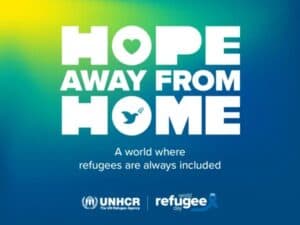
Hope Away from Home
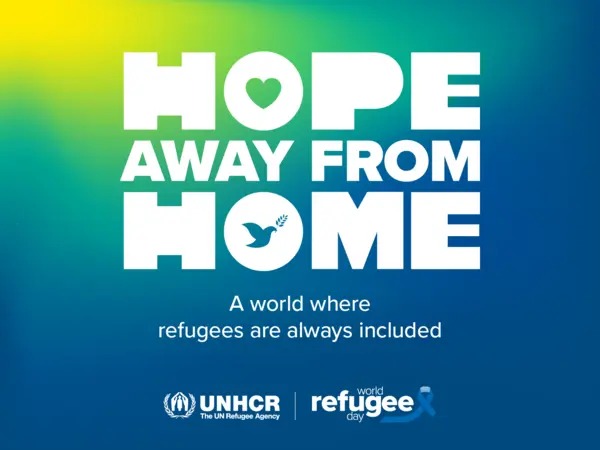
On June 20, we, together with millions around the world, and led by the UNHCR, mark World Refugee Day, a day to celebrate the resilience and courage of millions of people who have been forced to flee their homes and seek safety in other countries. It is also a day to raise awareness and solidarity for their plight and their rights.
Refugees are not just numbers or statistics. They are human beings with dreams, talents, and aspirations. They have endured unimaginable hardships and losses, but they have not given up hope. They have shown remarkable strength and adaptability in the face of adversity.
Refugees deserve respect, compassion, and support. They deserve to be included in the societies that host them, have access to education, health care, livelihoods, and legal protection. They deserve to have opportunities to contribute to their new communities and to shape their own futures. They deserve to thrive, not just survive.
This year, let us remember that refugees are not a burden, but a blessing. They enrich our cultures, economies, and societies with their diversity, skills, and creativity. Let us stand with refugees today and every day. Let us welcome them with open arms and open hearts. Let us give them hope away from home.
The post World Refugee Day 2023 appeared first on Global Network of Religions for Children.
The post World Refugee Day 2023 appeared first on Arigatou International.
09/06/2023 - A Sustainable Apiculture Journey
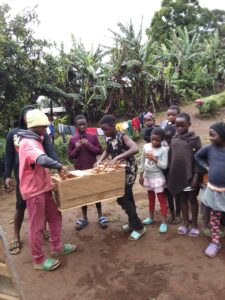
Harnessing the Bountiful Honey of Cameroon
Cameroon, often referred to as “Africa in miniature,” is a land blessed with natural beauty and abundant resources. Among its many treasures, lies the thriving apiculture sector, where traditional and adapted methods are harnessed to produce pure, natural, and high-quality honey. The unique geographical location of Cameroon, coupled with its diverse vegetation, spanning from lush forests to vast grasslands, provides bees with a diverse range of high-quality nectar sources, creating an ideal environment for beekeeping. This ensures that the honey produced in Cameroon is unparalleled in its taste and nutritional value.
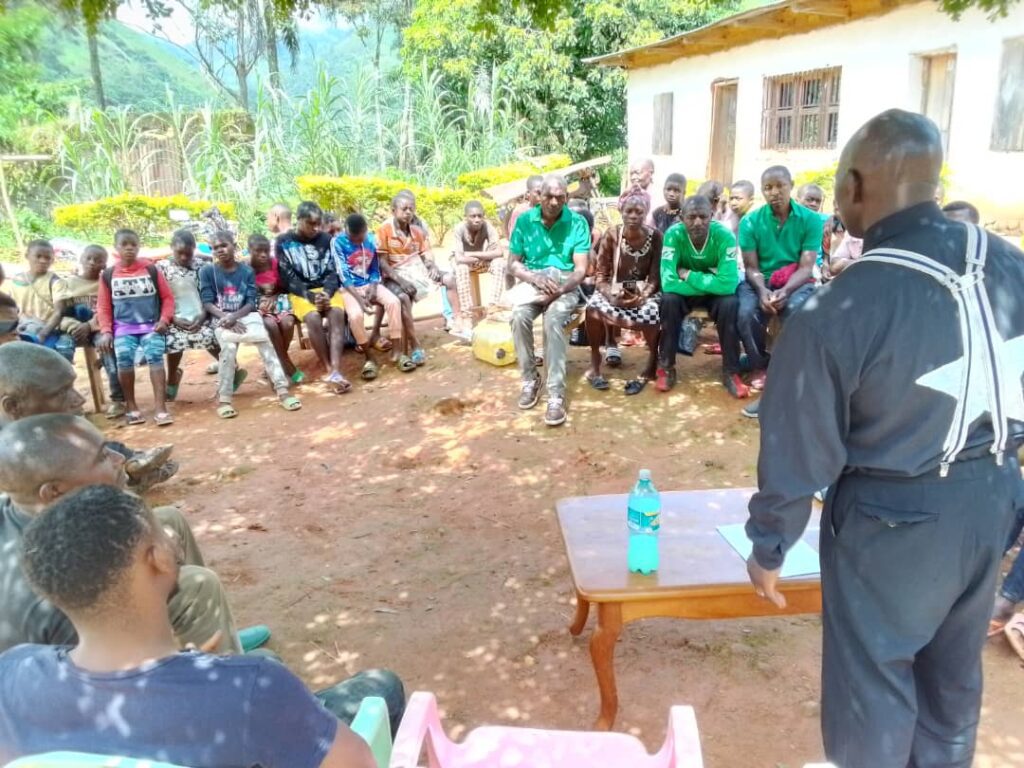
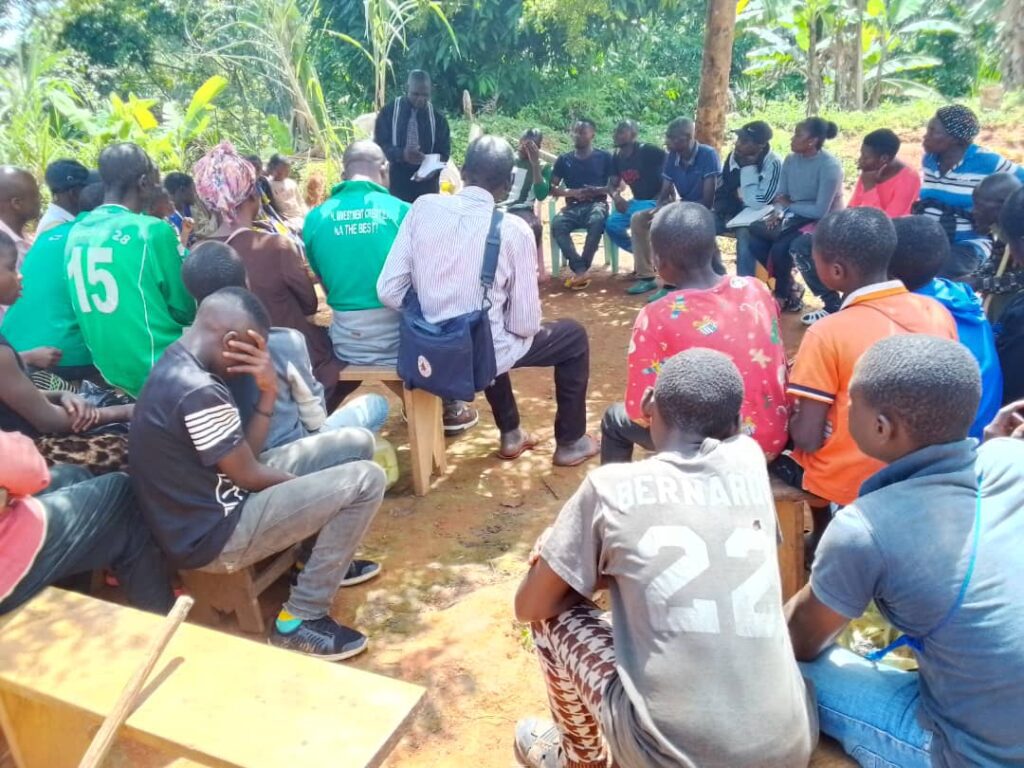
Recognizing the potential of the apiculture sector to drive sustainable development, GNRC Cameroon has taken the initiative to educate communities about beekeeping. In July 2022, they organized a forum in the marginalized villages, introducing the construction of beehives and emphasizing the economic and environmental benefits of beekeeping.
Building on this success, in June 2023, the GNRC members, led by their dedicated Coordinator, Mr. Alexander Gwanvalla, conducted similar workshops in different regions of Cameroon.
During the workshops, the GNRC members, some of them teachers, used the Learning to Live Together manual guide to instill values of cooperation and poverty alleviation in children. By combining beekeeping education with lessons on living harmoniously, these workshops fostered a sense of unity among the villagers. The approach by GNRC members in Cameroon not only equips communities with knowledge and skills for sustainable beekeeping but also cultivates a culture of empathy and mutual respect.
While the quest for sustainable apiculture continues to thrive in Cameroon, the journey is not without its fair share of challenges. One major obstacle faced by the GNRC members during their sensitization efforts was poor road infrastructure. Despite this hurdle, their determination and commitment to uplift these communities remained unwavering.
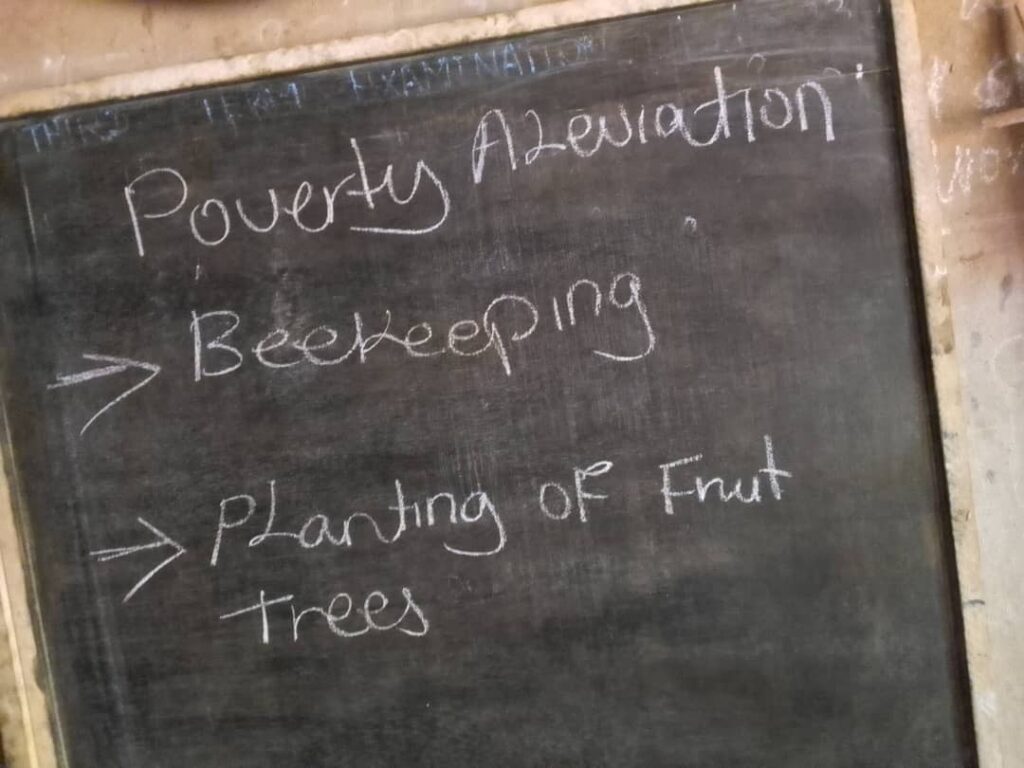
The post A Sustainable Apiculture Journey appeared first on Global Network of Religions for Children.
The post A Sustainable Apiculture Journey appeared first on Arigatou International.
06/06/2023 - Children as Agents of Change
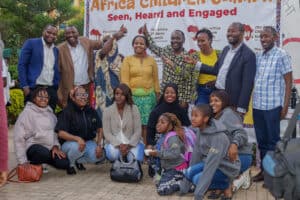
“Children are not a problem to be solved, but a resource that needs investing in.”
~ Dr. Najat Maalla M’jid

What role do you think children have in advocating for their rights and well-being? And how powerful do you think their voices are?
This came to play during the inaugural Africa Children Summit, where children advocated for their rights and well-being and displayed how powerful their voices are, through their participation. The event took place in Nairobi from April 10th to 12th 2023. Mtoto News, a digital and media platform whose mission is to make children visible through curating, creating, and circulating content on children and by children, hosted the summit. Alongside with partners, children from different African countries were brought together (both virtually and physically) to discuss issues affecting them. Countries represented in person at the summit included; Kenya, Tanzania, Mali, Rwanda, Sierra Leone, South Africa, Uganda, Zambia, and Zimbabwe.


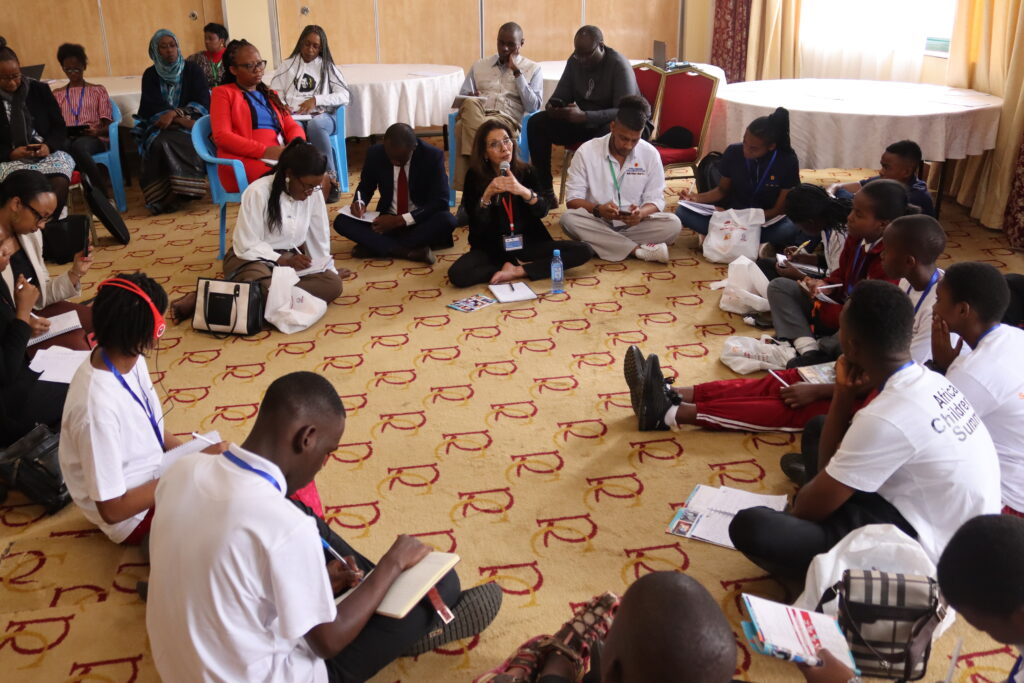
The summit was an event by children for children. Children moderated the sessions and discussed issues they felt affected them. Among the children at the forum were representatives from Arigatou International – Nairobi. Arigatou International partnered and participated in the summit as it amplified one of the commitments of The Panama Declaration on Ending Violence Against Children through its theme, Seen, Heard, and Engaged. The theme and active participation of children amplified the first commitment; to listen to children with empathy and respect, welcome their wisdom and gifts, and continue to work side-by-side to address violence against them.
The summit was graced by leaders from different organizations and institutions who shared a few words with the children and adult participants. Dr. Najat Maalla M’jid, the United Nations Special Representative of the Secretary-General on Violence Against Children, emphasized the need to advocate for children and the importance of having intergenerational dialogue to bridge the gap between different generations. She also committed to making sure that children are seen, heard, and engaged. Hon. Lady Justice Martha K. Koome, EGH, Chief Justice of Kenya emphasized the commitment of the Kenyan justice system to fully implement and comply with the terms of the Children’s Act, 2022. Prof. Philip Jaffé, Vice Chair UN (United Nations) Committee on the Rights of the Child stated, “Every child in this room is part of history.”
Among the speakers at the forum, Dr. Mustafa Y. Ali, Secretary General, GNRC, and Fred Nyabera, Director, End Child Poverty, represented Arigatou International, expressing their commitment to work for and with children.
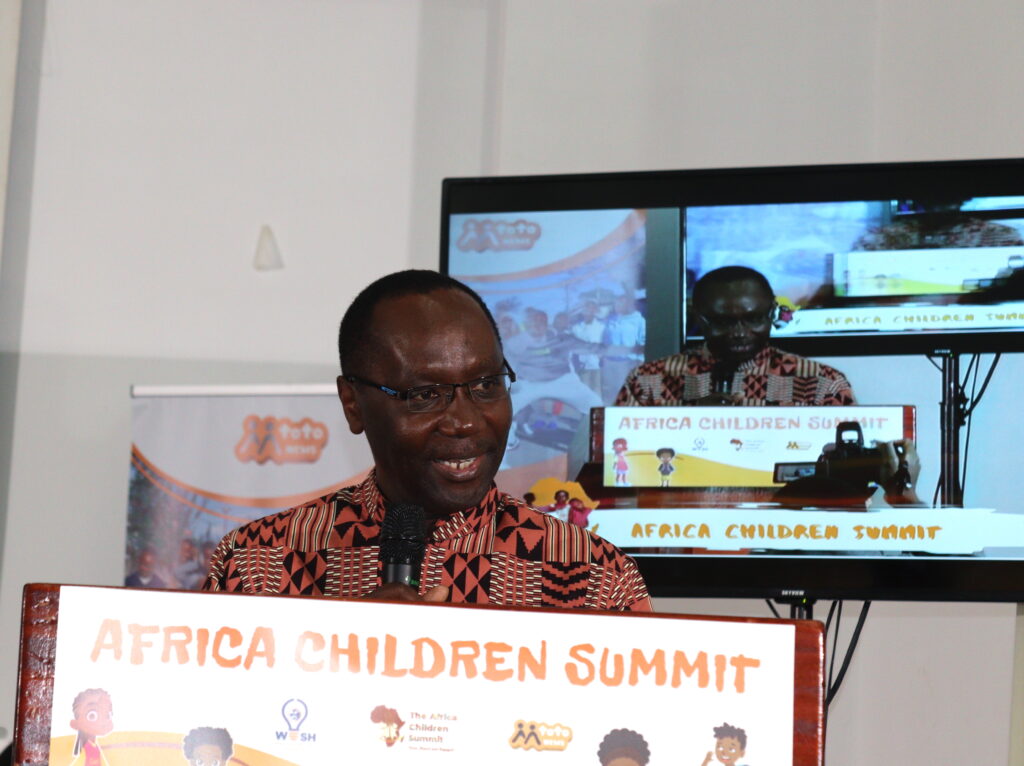
“We are excited to hear what children have to say and look forward to seeing the impact their ideas have on Africa and the world.”
~ Fred Nyabera, Director, End Child Poverty
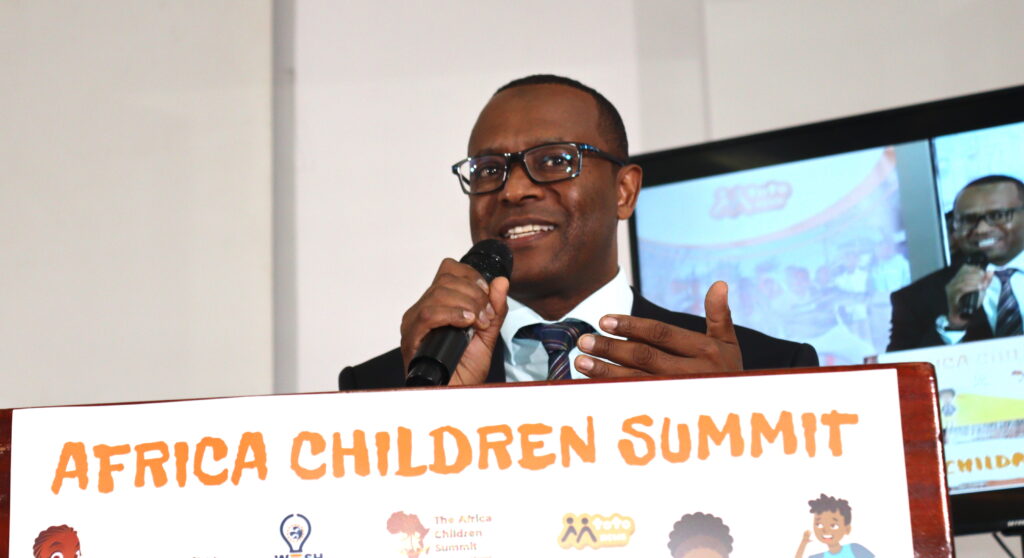
“Four things that we must look into and address before we find ourselves at a crossroad of a global emergency are Children, Climate, Conflict, and COVID.
~ Dr. Mustafa Y. Ali, Secretary General, GNRC
Ms. Elizabeth, a social worker stated that the summit was a great forum for children to express themselves as they know the challenges they face and the workable solutions to them.
The summit ended with immense insistence from children to be heard and engaged in all matters affecting them, as they too are important agents of change, through their contributions and insights.
The post Children as Agents of Change appeared first on Global Network of Religions for Children.
The post Children as Agents of Change appeared first on Arigatou International.
26/05/2023 - Turning Heaps of ‘Rubble and Dust’ to HOPE
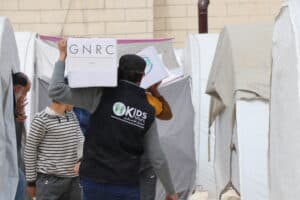
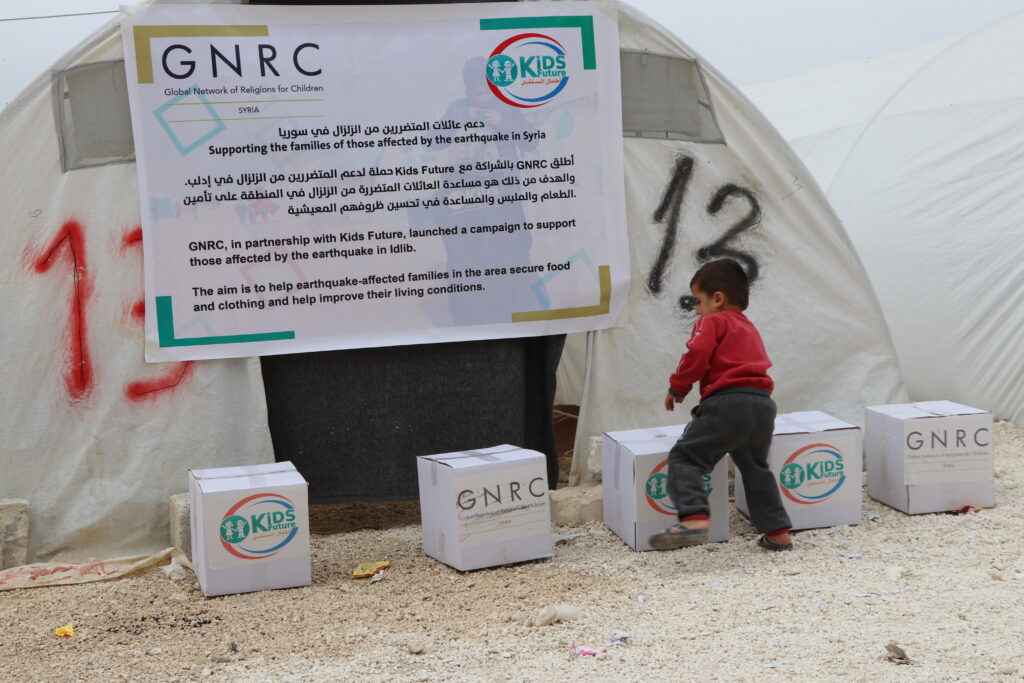
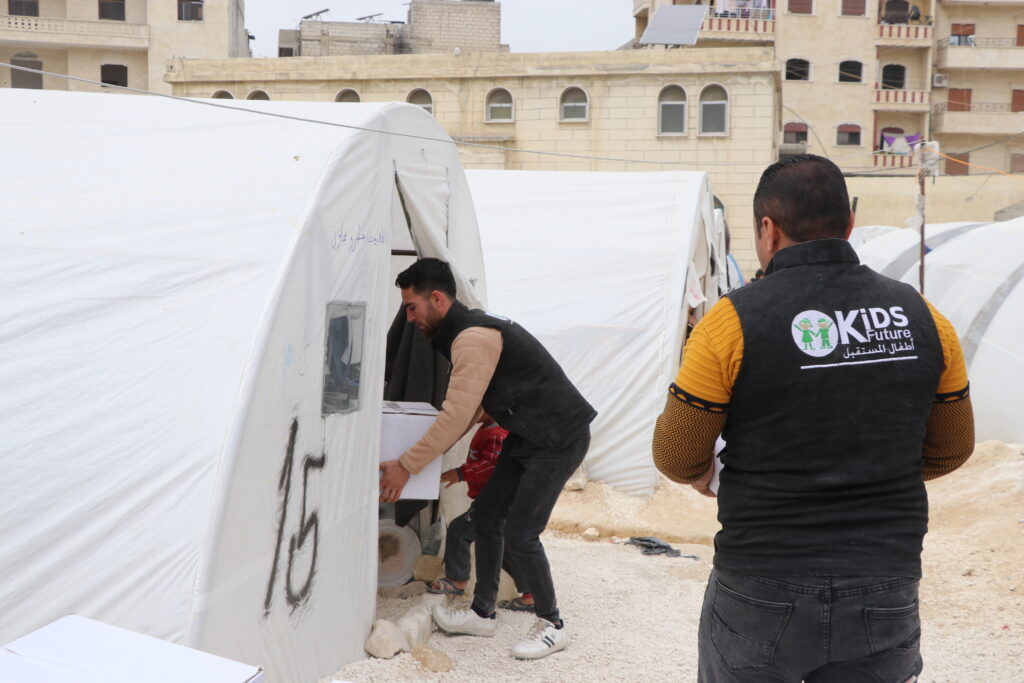
Humanitarian Aid to Families Affected by the Earthquake in Syria
Imagine having your life turned upside down in a single moment. One minute all is well and the next, everything around you is turned into a heap of rubble and dust. You are left helpless, worrying about your safety and that of your loved ones…but mostly saddened by the reality of events and the implications they will have on children and their future. This is the story of thousands of Turks and Syrians who were affected by the earthquakes that occurred in February 2023.
Two earthquakes struck northern and western Syria, and southern and central Turkey, on 6 February 2023 leaving widespread damages in their wake and thousands of fatalities. A report by UNICEF stated that more than 850,000 Syrian and Turkish children were displaced by the earthquakes, leaving hundreds of thousands living in desperate conditions.
Millions of people in Syria were left homeless.
Standing firm on its mandate that every child has the right to survive and thrive, the GNRC through Kids Future aided the affected families. They set up tents, provided basic needs such as food and clothing, and secured land rent for them. Medicines and nebulizers needed to treat children from bronchitis and other child-related diseases during the winter season were provided.
The post Turning Heaps of ‘Rubble and Dust’ to HOPE appeared first on Global Network of Religions for Children.
The post Turning Heaps of ‘Rubble and Dust’ to HOPE appeared first on Arigatou International.
14/04/2023 - GNRC Indonesia Committee Launch
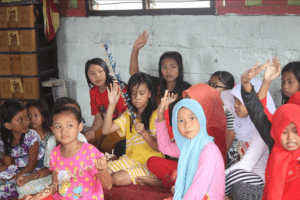
Unity in Religious Diversity
On 29th March 2023, GNRC Indonesia launched its committee in an online event, under the theme “Preserve and Celebrate Interfaith Diversity with Indonesian Children.” GNRC members in Indonesia participated from five regions; Pontianak-West Kalimantan, Poso-Central Sulawesi, Ambon-Maluku, Jember-East Java, and Yogyakarta.
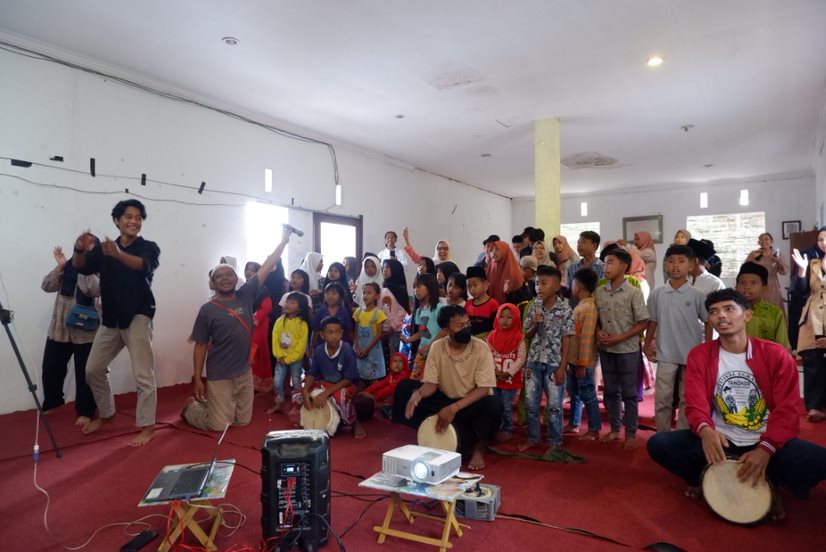
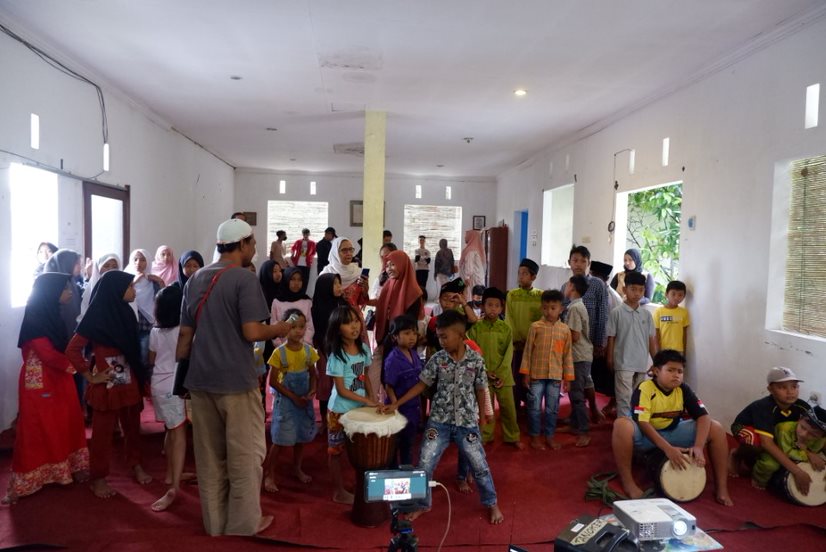
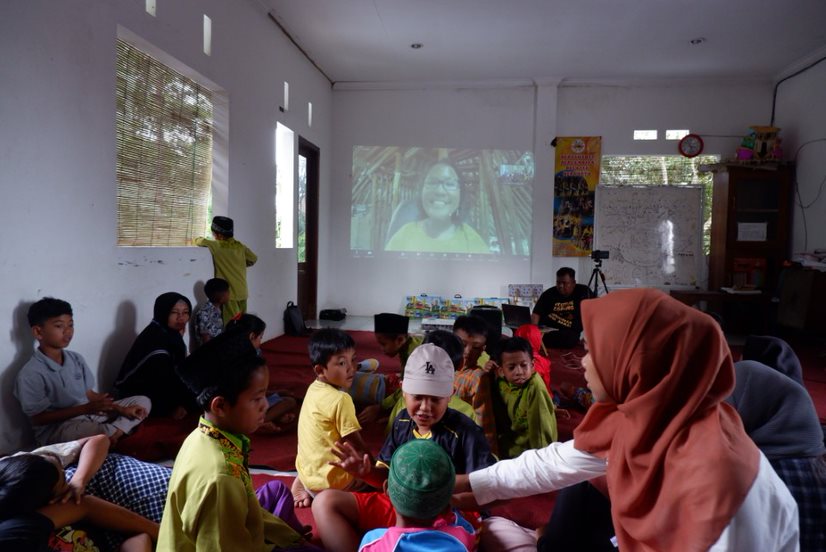
The event began with welcome remarks from Ms. Lian Gogali, Coordinator, GNRC Indonesia, and prayers from two children. Ms. Gogali introduced the different organizations within GNRC Indonesia and the work they do for children. She also shared the work of GNRC in Indonesia.
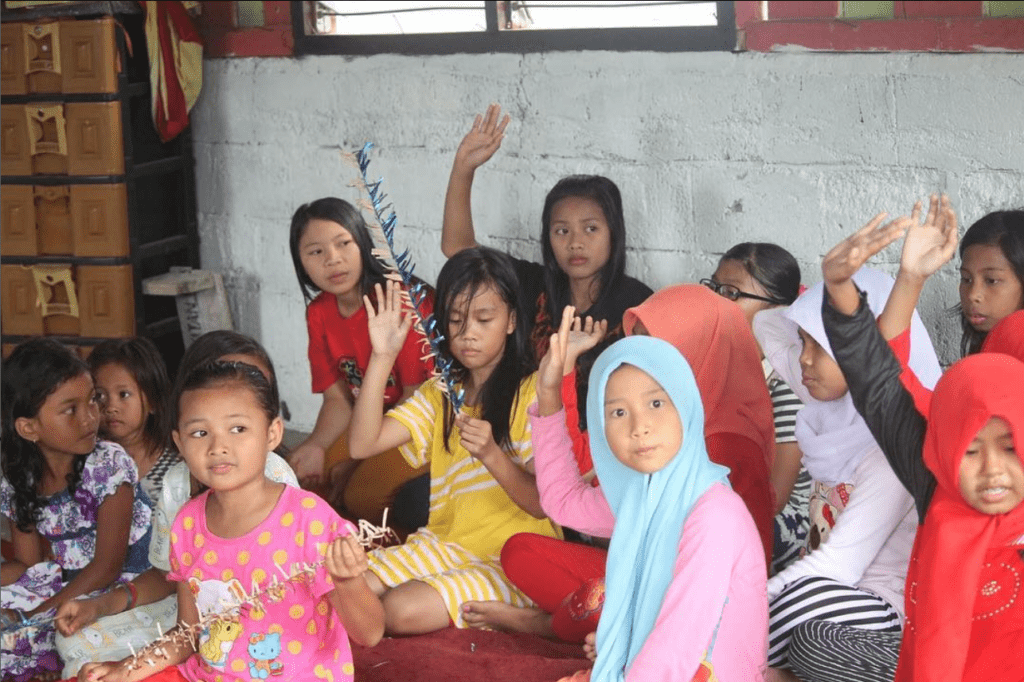
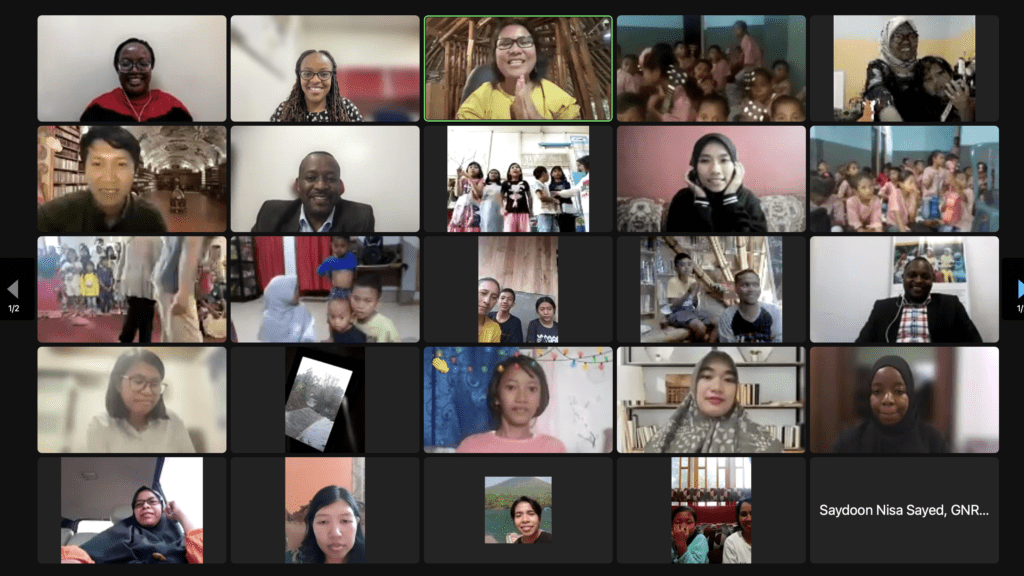
During the event, poems, songs, and dances by Indonesian children were played, all echoing the message of unity in religious diversity, and learning to live together in harmony.
Mr. Humphrey Macharia, Programs Officer, GNRC, gave a brief presentation of the GNRC, highlighting the work by members to strengthen and reinvigorate the Network as recommended in the GNRC Assessment Report. Dr. Mustafa Y. Ali, Secretary General, GNRC, congratulated GNRC Indonesia for the launch of their committee and applauded the active participation of children in the launch.“I am happy to see children from around Indonesia participating in GNRC activities.” – Dr. Ali. He proceeded to declare the GNRC Indonesia Committee launched. The event ended with song performances by children.
“We should respect other people’s religion, and learn about them so that we do not display ignorance towards them and their beliefs.” – Ahmed, GNRC Indonesia
“I am happy to have friends from different religions in my community, with whom I play with.” – Kayla, GNRC Indonesia
The post GNRC Indonesia Committee Launch appeared first on Global Network of Religions for Children.
The post GNRC Indonesia Committee Launch appeared first on Arigatou International.
14/04/2023 - GNRC Indonesia Committee Launch

Unity in Religious Diversity
On 29th March 2023, GNRC Indonesia launched its committee in an online event, under the theme “Preserve and Celebrate Interfaith Diversity with Indonesian Children.” GNRC members in Indonesia participated from five regions; Pontianak-West Kalimantan, Poso-Central Sulawesi, Ambon-Maluku, Jember-East Java, and Yogyakarta.



The event began with welcome remarks from Ms. Lian Gogali, Coordinator, GNRC Indonesia, and prayers from two children. Ms. Gogali introduced the different organizations within GNRC Indonesia and the work they do for children. She also shared the work of GNRC in Indonesia.


During the event, poems, songs, and dances by Indonesian children were played, all echoing the message of unity in religious diversity, and learning to live together in harmony.
Mr. Humphrey Macharia, Programs Officer, GNRC, gave a brief presentation of the GNRC, highlighting the work by members to strengthen and reinvigorate the Network as recommended in the GNRC Assessment Report. Dr. Mustafa Y. Ali, Secretary General, GNRC, congratulated GNRC Indonesia for the launch of their committee and applauded the active participation of children in the launch.“I am happy to see children from around Indonesia participating in GNRC activities.” – Dr. Ali. He proceeded to declare the GNRC Indonesia Committee launched. The event ended with song performances by children.
“We should respect other people’s religion, and learn about them so that we do not display ignorance towards them and their beliefs.” – Ahmed, GNRC Indonesia
“I am happy to have friends from different religions in my community, with whom I play with.” – Kayla, GNRC Indonesia
The post GNRC Indonesia Committee Launch appeared first on Global Network of Religions for Children.
The post GNRC Indonesia Committee Launch appeared first on Arigatou International.
31/03/2023 - The Influence of Globalization on Child-Parent Relationship(s)

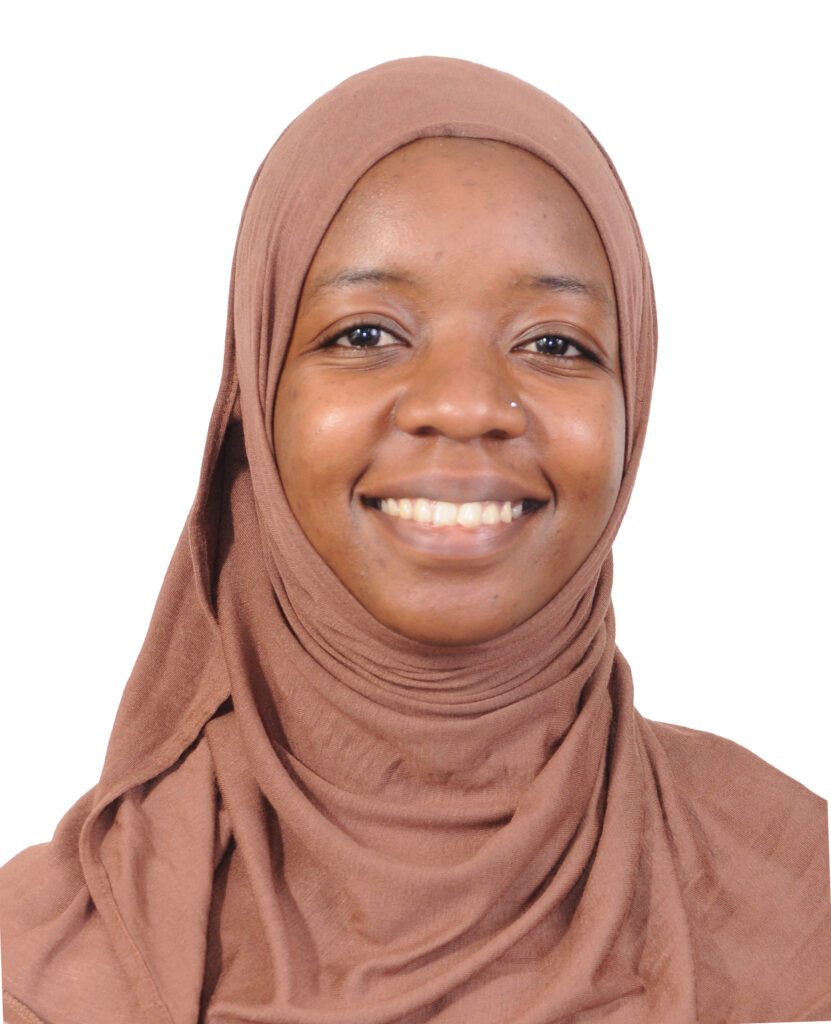
We live in a globalized era where the world has become a global village with technological advancements making it easier for the world to connect. Many economies have opened, helping more and more countries improve the living standards of their citizens and empowering many to step out of ‘traditional’ set expectations. Although greatly beneficial, globalization is a double-edged sword that has come with a cost. It has considerably changed the family dynamics and its structures through the ‘fluidity’ of gender roles.
According to Oláh et al., 20181, globalization has seen gender roles become more ‘fluid’ with each gender taking up chores that were previously restricted to the ‘other’. Gender roles for a long time have influenced how parents communicate with each other and with their children. As parents work to fit into today’s world and expectations, a great shift in the parent-child relationship has been caused.
Through the ‘Building Family Resilience: Women of Faith in Action’ project launched by Arigatou International-Nairobi in partnership with the Global Community Engagement and Resilience Fund (GCERF), in Mombasa Kenya, it was revealed that a negative shift in the parent-child relationship has left children vulnerable to exploitation. The interviewees attributed the negative shift to parental negligence, as they try to navigate the globalized world. This has left children feeling alone, causing them to display various emotions that the parents fail to notice, and that are taken advantage of by violent extremists.
Though they are minor contributors to an unjust world, children suffer the most in contemporary societies which are characterized by the need for children to be more engaged with their parents. The overreliance on online connection due to globalization has resulted in poor communication between parents and their children leading to a lack of trust. Due to this, children are left vulnerable to recruitment into extremist groups via social media, online sexual abuse, and bullying.
Intergenerational dialogues have however proven to be helpful in mending broken parent-child relationships as parents get to reconnect with their children when the children voice their concerns. Parents get to acknowledge and understand their children’s opinions and emotions. Through the Interfaith Initiative to End Child Poverty, an initiative of Arigatou International, the importance of intergenerational dialogues for the well-being of children was realized. This led (among others), led to the launch of the SDGs Academy for children in Kenya and Sri Lanka. Here, regular intergenerational dialogues are conducted in the Faith and Dialogue Hub. During these dialogues, parents, caregivers, policymakers, community, and faith leaders including other relevant stakeholders get to actively listen to children’s views and get to hold conversations on issues affecting children, and how to work on them through children-focused policies and programs.
Connecting to parts of us that maintain the family dynamics is essential for stronger and more moral societies. Children’s emotions and opinions should be heard, nurtured, and cared for to have a positive impact on society. Parents must be more intentional in their parenting, as children are more prone to harm now than ever.
WORK CITED
Oláh, L.S., Kotowska, I.E. and Richter, R., 2018. The new roles of men and women and implications for families and societies (pp. 41-64). Springer International Publishing.
Lim, S.A. and You, S., 2019. Effect of parental negligence on mobile phone dependency among vulnerable social groups: Mediating effect of peer attachment. Psychological reports, 122(6), pp.2050-2062.
The post The Influence of Globalization on Child-Parent Relationship(s) appeared first on Global Network of Religions for Children.
The post The Influence of Globalization on Child-Parent Relationship(s) appeared first on Arigatou International.
31/03/2023 - The Influence of Globalization on Child-Parent Relationship(s)


We live in a globalized era where the world has become a global village with technological advancements making it easier for the world to connect. Many economies have opened, helping more and more countries improve the living standards of their citizens and empowering many to step out of ‘traditional’ set expectations. Although greatly beneficial, globalization is a double-edged sword that has come with a cost. It has considerably changed the family dynamics and its structures through the ‘fluidity’ of gender roles.
According to Oláh et al., 20181, globalization has seen gender roles become more ‘fluid’ with each gender taking up chores that were previously restricted to the ‘other’. Gender roles for a long time have influenced how parents communicate with each other and with their children. As parents work to fit into today’s world and expectations, a great shift in the parent-child relationship has been caused.
Through the ‘Building Family Resilience: Women of Faith in Action’ project launched by Arigatou International-Nairobi in partnership with the Global Community Engagement and Resilience Fund (GCERF), in Mombasa Kenya, it was revealed that a negative shift in the parent-child relationship has left children vulnerable to exploitation. The interviewees attributed the negative shift to parental negligence, as they try to navigate the globalized world. This has left children feeling alone, causing them to display various emotions that the parents fail to notice, and that are taken advantage of by violent extremists.
Though they are minor contributors to an unjust world, children suffer the most in contemporary societies which are characterized by the need for children to be more engaged with their parents. The overreliance on online connection due to globalization has resulted in poor communication between parents and their children leading to a lack of trust. Due to this, children are left vulnerable to recruitment into extremist groups via social media, online sexual abuse, and bullying.
Intergenerational dialogues have however proven to be helpful in mending broken parent-child relationships as parents get to reconnect with their children when the children voice their concerns. Parents get to acknowledge and understand their children’s opinions and emotions. Through the Interfaith Initiative to End Child Poverty, an initiative of Arigatou International, the importance of intergenerational dialogues for the well-being of children was realized. This led (among others), led to the launch of the SDGs Academy for children in Kenya and Sri Lanka. Here, regular intergenerational dialogues are conducted in the Faith and Dialogue Hub. During these dialogues, parents, caregivers, policymakers, community, and faith leaders including other relevant stakeholders get to actively listen to children’s views and get to hold conversations on issues affecting children, and how to work on them through children-focused policies and programs.
Connecting to parts of us that maintain the family dynamics is essential for stronger and more moral societies. Children’s emotions and opinions should be heard, nurtured, and cared for to have a positive impact on society. Parents must be more intentional in their parenting, as children are more prone to harm now than ever.
WORK CITED
Oláh, L.S., Kotowska, I.E. and Richter, R., 2018. The new roles of men and women and implications for families and societies (pp. 41-64). Springer International Publishing.
Lim, S.A. and You, S., 2019. Effect of parental negligence on mobile phone dependency among vulnerable social groups: Mediating effect of peer attachment. Psychological reports, 122(6), pp.2050-2062.
The post The Influence of Globalization on Child-Parent Relationship(s) appeared first on Global Network of Religions for Children.
The post The Influence of Globalization on Child-Parent Relationship(s) appeared first on Arigatou International.
29/03/2023 - Empowering Women for Improved Livelihoods
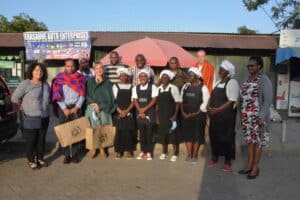
Building Family Resilience Against Violent Extremism: Women of Faith in Action
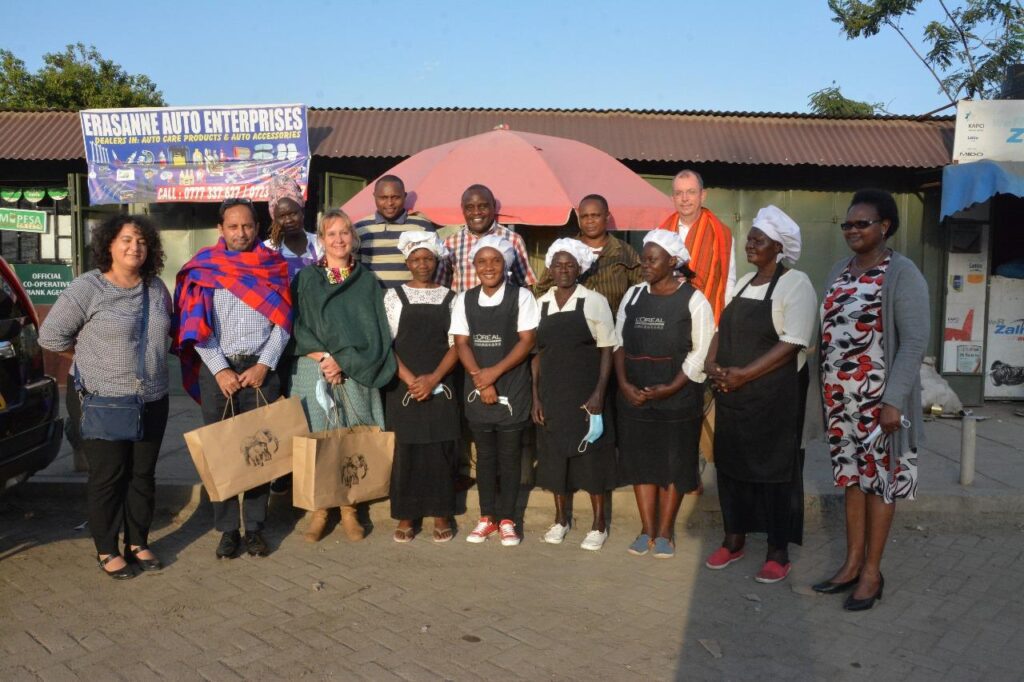
Women’s role in providing food, education, and shelter for their families cannot be underestimated. I refer to a quote by William Golding “Whatever you give a woman, she will make greater, if you give her groceries, she will give you a meal, if you give her a house, she will give you a home… she multiplies and enlarges!” Allow me to compliment the quote by adding… “when you teach her to fish, you feed her whole community”. This illustrates the influence that women have on their communities.
Motivated by the need to increase women’s meaningful participation in the socio-economic development of their communities, Arigatou International, with support from the Global Community Engagement and Resilience Fund (GCERF) designed and implemented a program aimed at empowering vulnerable women. They equipped them with business skills and knowledge in the prevention of violent extremism that has greatly affected young people in their communities. The program benefitted 187 women of faith (Christians and Muslims), living in the informal settlements of Kamukunji, Nairobi and Kisauni, Mombasa.
One of the success stories is the small business start-up run by a group of women living in Jericho area of Nairobi. The group consists of women from different religious and ethnic backgrounds who run a small café. With the seed grant and training provided by the program, they have been able to develop their business skills, financial literacy, and marketing strategies, enabling them to increase their sales and profits. Representatives from the GCERF and the European Union paid a courtesy visit to the start-up to observe the results. Speaking during the visit, one of the beneficiaries, noted that she had never attended any formal school, but through the training, she was motivated to open and manage her own business, and she can now provide for and support her family.
The success of this small start-up is a testament to the effectiveness of the Women of Faith in Action program in promoting economic empowerment and resilience-building in marginalized communities. It highlights the importance of supporting women-led initiatives in promoting sustainable development and preventing violent extremism. In addition, it shows that empowering women is beneficial not only for their individual well-being but also for the development and resilience of their communities.
– By Humphrey Macharia, GNRC Programs Officer
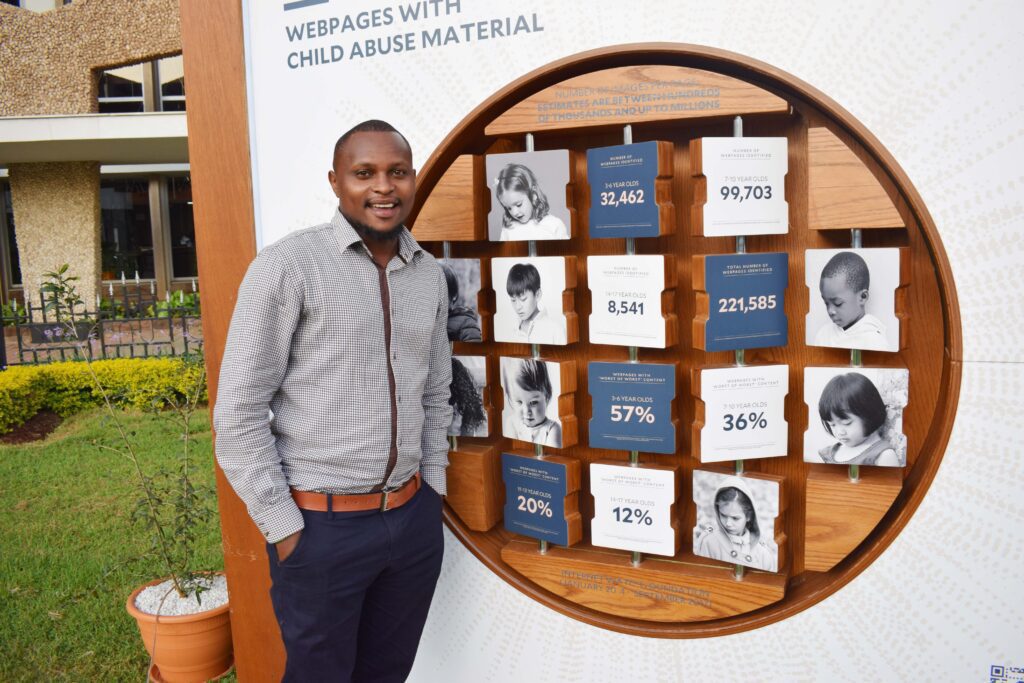
“Women are powerful agents of change who can transform their families, communities, and societies and by supporting them it is possible to create a more equitable and peaceful world.”
– Humphrey Macharia
The post Empowering Women for Improved Livelihoods appeared first on Global Network of Religions for Children.
The post Empowering Women for Improved Livelihoods appeared first on Arigatou International.
29/03/2023 - Empowering Women for Improved Livelihoods

Building Family Resilience Against Violent Extremism: Women of Faith in Action

Women’s role in providing food, education, and shelter for their families cannot be underestimated. I refer to a quote by William Golding “Whatever you give a woman, she will make greater, if you give her groceries, she will give you a meal, if you give her a house, she will give you a home… she multiplies and enlarges!” Allow me to compliment the quote by adding… “when you teach her to fish, you feed her whole community”. This illustrates the influence that women have on their communities.
Motivated by the need to increase women’s meaningful participation in the socio-economic development of their communities, Arigatou International, with support from the Global Community Engagement and Resilience Fund (GCERF) designed and implemented a program aimed at empowering vulnerable women. They equipped them with business skills and knowledge in the prevention of violent extremism that has greatly affected young people in their communities. The program benefitted 187 women of faith (Christians and Muslims), living in the informal settlements of Kamukunji, Nairobi and Kisauni, Mombasa.
One of the success stories is the small business start-up run by a group of women living in Jericho area of Nairobi. The group consists of women from different religious and ethnic backgrounds who run a small café. With the seed grant and training provided by the program, they have been able to develop their business skills, financial literacy, and marketing strategies, enabling them to increase their sales and profits. Representatives from the GCERF and the European Union paid a courtesy visit to the start-up to observe the results. Speaking during the visit, one of the beneficiaries, noted that she had never attended any formal school, but through the training, she was motivated to open and manage her own business, and she can now provide for and support her family.
The success of this small start-up is a testament to the effectiveness of the Women of Faith in Action program in promoting economic empowerment and resilience-building in marginalized communities. It highlights the importance of supporting women-led initiatives in promoting sustainable development and preventing violent extremism. In addition, it shows that empowering women is beneficial not only for their individual well-being but also for the development and resilience of their communities.
– By Humphrey Macharia, GNRC Programs Officer

“Women are powerful agents of change who can transform their families, communities, and societies and by supporting them it is possible to create a more equitable and peaceful world.”
– Humphrey Macharia
The post Empowering Women for Improved Livelihoods appeared first on Global Network of Religions for Children.
The post Empowering Women for Improved Livelihoods appeared first on Arigatou International.
22/03/2023 - The Power of Community-Driven Initiatives in Promoting Social and Economic Development
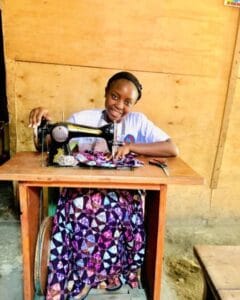
A GNRC Success Story – The Dress-Making Enterprise
The launch of the GNRC Democratic Republic of Congo (DRC) Committee on February 2nd, 2023, was a resounding success, with numerous positive reports of impacts on the local community. Through the funds received from GNRC, the committee members were able to undertake several activities that have improved the lives of vulnerable children and families in Goma.
Amid the ongoing conflict in North Kivu, where GNRC operates, the committee’s efforts to end child poverty and create income-generating activities for the vulnerable are noteworthy. One of the most significant achievements by the GNRC members was the purchase and distribution of fourteen sewing machines to sixteen school-going girls from vulnerable families. The young beneficiaries received training on how to use the machines that allowed them to sew their own clothes and those of other school-going children from the most affected families by the ongoing war. The young beneficiaries have also gone a step further to impact the community by sewing clerical clothes, earning them money to cater for themselves and their families.
Moreover, the young beneficiaries are also passing on the skills gained by leading and training a group of children on how to use the machines. Their long-term goal is to have a big workshop where they can set up their sewing machines and work from a common area, a bold and ambitious effort from the youth. Most importantly, the beneficiaries are now able to pay their school fees without asking for money from their parents – a significant achievement indeed. This demonstrates that small acts with minimal resources by GNRC DRC have immediate and long-term benefits.
Overall, the GNRC DRC committee’s efforts have significantly impacted the community, and their commitment to further support vulnerable children through initiatives like ‘The Dress Making Enterprise’ are inspiring. Their story is a testament to the power of community-driven initiatives in promoting social and economic development.
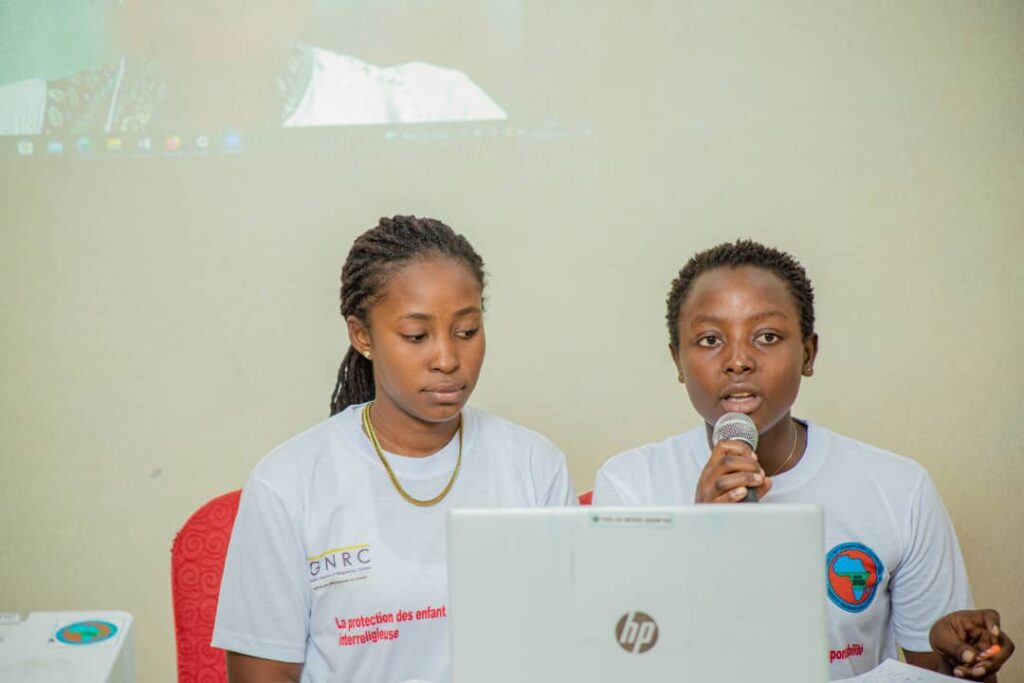
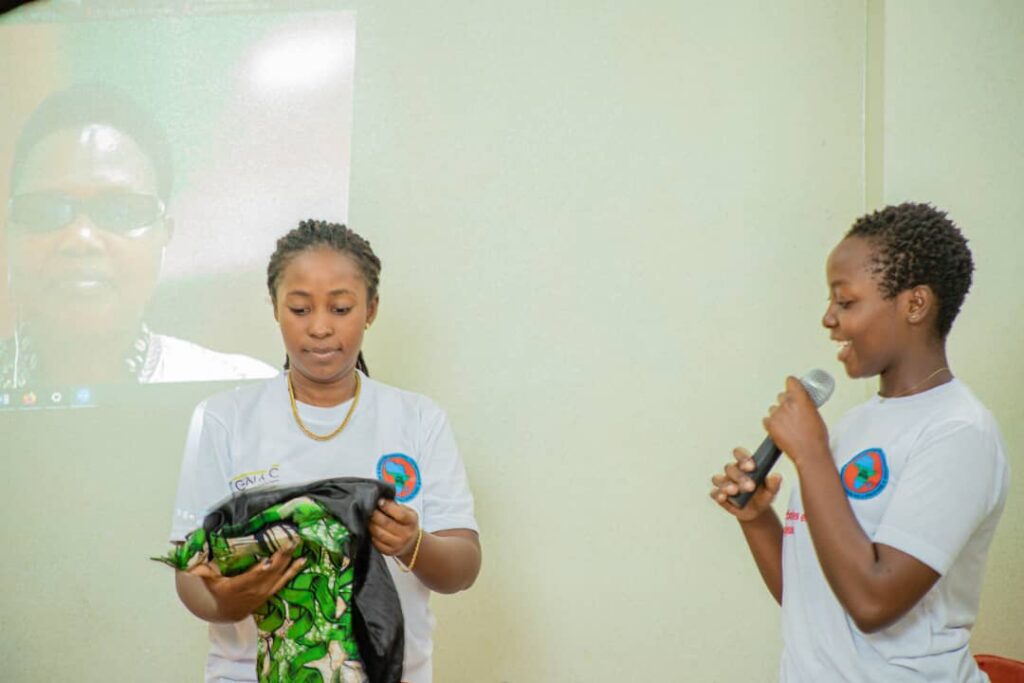
The post <strong>The Power of Community-Driven Initiatives in Promoting Social and Economic Development</strong> appeared first on Global Network of Religions for Children.
The post The Power of Community-Driven Initiatives in Promoting Social and Economic Development appeared first on Arigatou International.
22/03/2023 - The Power of Community-Driven Initiatives in Promoting Social and Economic Development

A GNRC Success Story – The Dress-Making Enterprise
The launch of the GNRC Democratic Republic of Congo (DRC) Committee on February 2nd, 2023, was a resounding success, with numerous positive reports of impacts on the local community. Through the funds received from GNRC, the committee members were able to undertake several activities that have improved the lives of vulnerable children and families in Goma.
Amid the ongoing conflict in North Kivu, where GNRC operates, the committee’s efforts to end child poverty and create income-generating activities for the vulnerable are noteworthy. One of the most significant achievements by the GNRC members was the purchase and distribution of fourteen sewing machines to sixteen school-going girls from vulnerable families. The young beneficiaries received training on how to use the machines that allowed them to sew their own clothes and those of other school-going children from the most affected families by the ongoing war. The young beneficiaries have also gone a step further to impact the community by sewing clerical clothes, earning them money to cater for themselves and their families.
Moreover, the young beneficiaries are also passing on the skills gained by leading and training a group of children on how to use the machines. Their long-term goal is to have a big workshop where they can set up their sewing machines and work from a common area, a bold and ambitious effort from the youth. Most importantly, the beneficiaries are now able to pay their school fees without asking for money from their parents – a significant achievement indeed. This demonstrates that small acts with minimal resources by GNRC DRC have immediate and long-term benefits.
Overall, the GNRC DRC committee’s efforts have significantly impacted the community, and their commitment to further support vulnerable children through initiatives like ‘The Dress Making Enterprise’ are inspiring. Their story is a testament to the power of community-driven initiatives in promoting social and economic development.


The post <strong>The Power of Community-Driven Initiatives in Promoting Social and Economic Development</strong> appeared first on Global Network of Religions for Children.
The post The Power of Community-Driven Initiatives in Promoting Social and Economic Development appeared first on Arigatou International.
17/03/2023 - Campaign Against Bullying and Violence in Romania
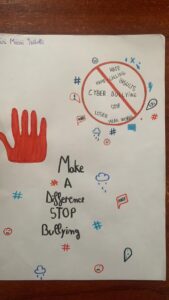
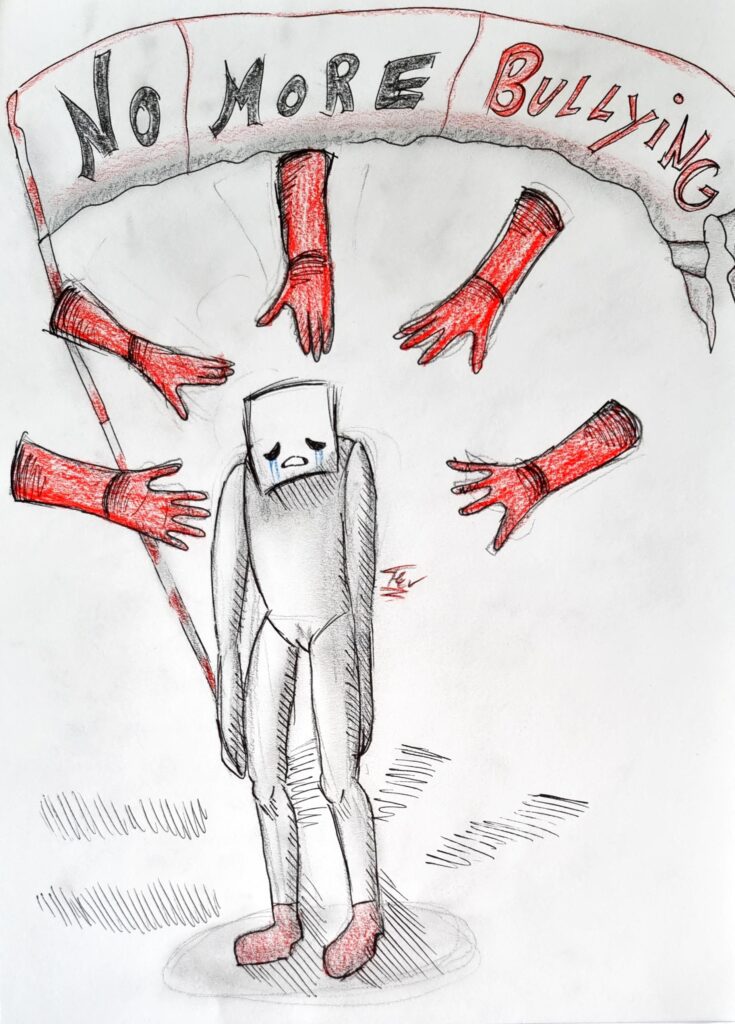
“We have to be more responsible with our words and behaviors.” – 15-year-old girl from Bistrita
GNRC Romania organized a series of activities from May 25th to June 15th, 2022, to promote the importance of children in raising awareness to end bullying in schools. The activities were held in fifteen schools in Bucharest, reaching 2000 primary and high-school students, fifty-four teachers, and several members of the community, including faith leaders from the Christian and Muslim faiths.
“Each child has the power and the responsibility to contribute to a safer environment in school. All children should feel valued, protected appreciated, and free to express their opinions.” – Ms. Laura Molnar, GNRC Coordinator, Romania.
“No one deserves to be the victim of bullying.” – 13-year-old boy from Bucharest
The post <a><strong>Campaign Against Bullying and Violence in Romania </strong></a> appeared first on Global Network of Religions for Children.
The post Campaign Against Bullying and Violence in Romania appeared first on Arigatou International.






